Victor Hugo
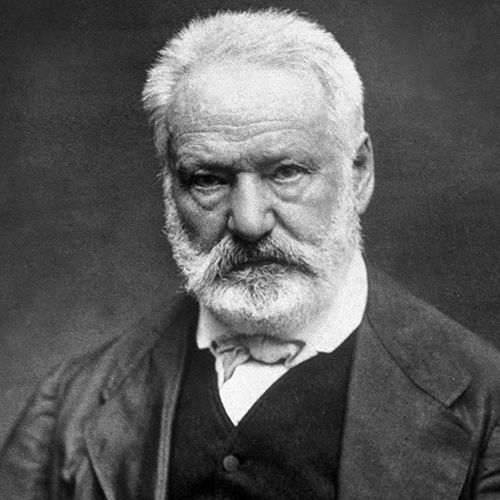
(1802-1885)

Who Was Victor Hugo?
Victor Hugo was a French poet and novelist who, after training as a lawyer, embarked on the literary career. He became one of the most important French Romantic poets, novelists and dramatists of his time, having assembled a massive body of work while living in Paris, Brussels and the Channel Islands. Hugo died on May 22, 1885, in Paris.
Victor-Marie Hugo was born in Besançon, France, on February 26, 1802, to mother Sophie Trébuche and father Joseph-Léopold-Sigisbert Hugo. His father was a military officer who later served as a general under Napoleon.
'The Hunchback of Notre Dame'
Hugo studied law between 1815 and 1818, though he never committed himself to legal practice. Encouraged by his mother, Hugo embarked on a career in literature. He founded the Conservateur Litteraire , a journal in which he published his own poetry and the work of his friends. His mother died in 1821. The same year, Hugo married Adèle Foucher and published his first book of poetry, Odes et poésies diverses . His first novel was published in 1823, followed by a number of plays.
Hugo's innovative brand of Romanticism developed over the first decade of his career.
In 1831, he published one of his most enduring works, Notre-Dame de Paris ( The Hunchback of Notre Dame ). Set in the medieval period, the novel presents a harsh criticism of the society that degrades and shuns the hunchback, Quasimodo. This was Hugo's most celebrated work to date and paved the way for his subsequent political writing.
'Les Misérables'
A prolific writer, Hugo was established as one of the most celebrated literary figures in France by the 1840s. In 1841, he was elected to the French Academy and nominated for the Chamber of Peers. He stepped back from publishing his work following the accidental drowning of his daughter and her husband in 1843. In private, he began work on a piece of writing that would become Les Misérables.
Hugo fled to Brussels following a coup in 1851. He lived in Brussels and in Britain until his return to France in 1870. Much of the work that Hugo published during this period conveys biting sarcasm and fierce social criticism. Among these works is the novel Les Misérables , which was finally published in 1862. The book was an immediate success in Europe and the United States. Later reinterpreted as a theatrical musical and a film, Les Misérables remains one of the best-known works of 19th-century literature.
Death and Legacy
Though Hugo returned to France after 1870 as a symbol of republican triumph, his later years were largely sad. He lost two sons between 1871 and 1873. His later works are somewhat darker than his earlier writing, focusing on themes of God, Satan and death.
In 1878, he was stricken with cerebral congestion. Hugo and his mistress, Juliette, continued to live in Paris for the rest of their lives. The street on which he lived was renamed Avenue Victor Hugo on the occasion of his 80th birthday in 1882. Juliette died the following year and Hugo died in Paris on May 22, 1885. He received a hero's funeral. His body lay in state beneath the Arc de Triomphe before burial in the Panthéon.
Hugo remains one of the giants of French literature. Although French audiences celebrate him primarily as a poet, he is better known as a novelist in English-speaking countries.
QUICK FACTS
- Name: Victor
- Birth Year: 1802
- Birth date: February 26, 1802
- Birth City: Besançon
- Birth Country: France
- Gender: Male
- Best Known For: Victor Hugo is a celebrated French Romantic author best known for his poetry and his novels, including 'The Hunchback of Notre Dame' and 'Les Misérables.'
- Fiction and Poetry
- Theater and Dance
- Astrological Sign: Pisces
- Nacionalities
- Death Year: 1885
- Death date: May 22, 1885
- Death City: Paris
- Death Country: France
CITATION INFORMATION
- Article Title: Victor Hugo Biography
- Author: Biography.com Editors
- Website Name: The Biography.com website
- Url: https://www.biography.com/authors-writers/victor-hugo
- Access Date:
- Publisher: A&E; Television Networks
- Last Updated: April 1, 2021
- Original Published Date: April 2, 2014
- When a woman is talking to you, listen to what she says with her eyes.
- An intelligent hell would be better than a stupid paradise.
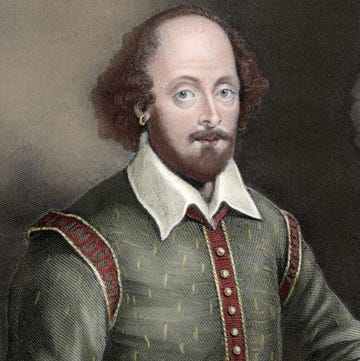
William Shakespeare
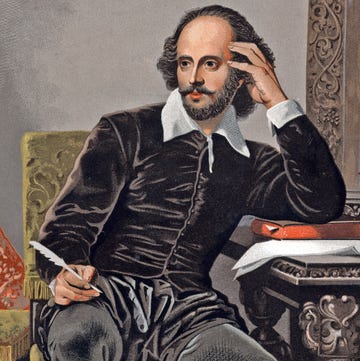
How Did Shakespeare Die?
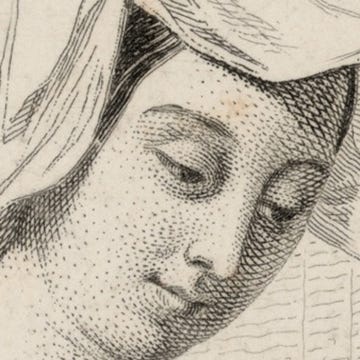
Christine de Pisan
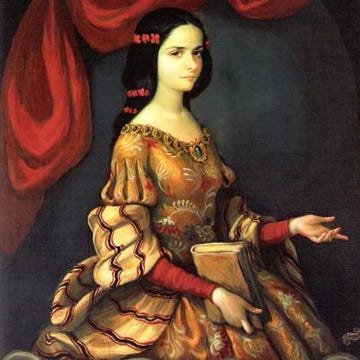
Sor Juana Inés de la Cruz
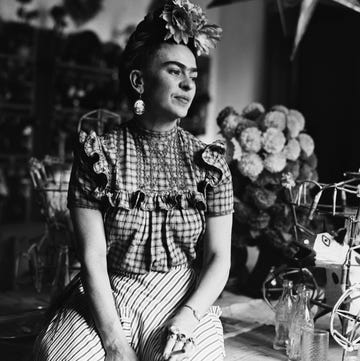
14 Hispanic Women Who Have Made History
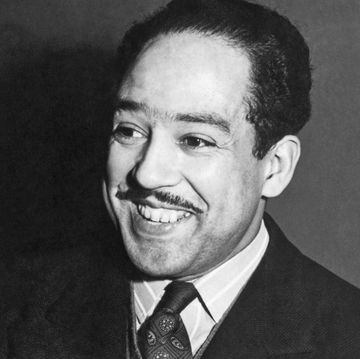
10 Famous Langston Hughes Poems

5 Crowning Achievements of Maya Angelou

Amanda Gorman
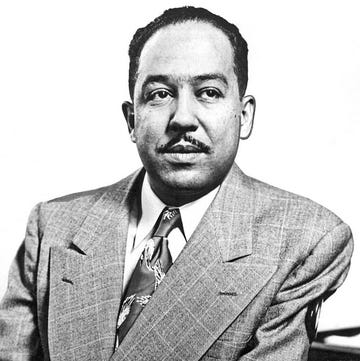
Langston Hughes
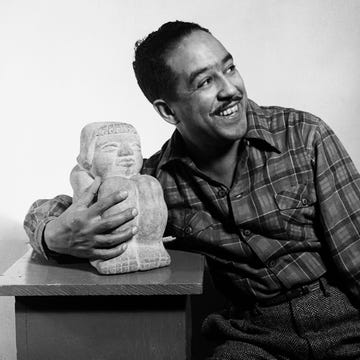
7 Facts About Literary Icon Langston Hughes
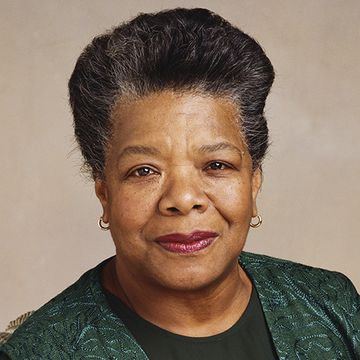
Maya Angelou
Biography of Victor Hugo, French Writer
Poet, novelist, and voice of the French Romantic Movement
London Stereoscopic Company / Hulton Archive / Getty Images
- Authors & Texts
- Top Picks Lists
- Study Guides
- Best Sellers
- Plays & Drama
- Shakespeare
- Short Stories
- Children's Books
:max_bytes(150000):strip_icc():format(webp)/ThoughtCo_Amanda_Prahl_webOG-48e27b9254914b25a6c16c65da71a460.jpg)
- M.F.A, Dramatic Writing, Arizona State University
- B.A., English Literature, Arizona State University
- B.A., Political Science, Arizona State University
Victor Hugo (February 26, 1802 – May 22, 1885) was a French poet and novelist during the Romantic Movement. Among French readers, Hugo is best known as a poet, but to readers outside of France, he’s best known for his epic novels The Hunchback of Notre Dame and Les Misérables .
Fast Facts: Victor Hugo
- Full Name: Victor Marie Hugo
- Known For: French poet and author
- Born: February 26, 1802 in Besançon, Doubs, France
- Parents: Joseph Léopold Sigisbert Hugo and Sophie Trébuchet
- Died: May 22, 1885 in Paris, France
- Spouse: Adèle Foucher (m. 1822-1868)
- Children: Léopold Hugo (1823), Léopoldine Hugo (1824-1843), Charles Hugo (b. 1826), François-Victor Hugo (1828-1873), Adèle Hugo (1830-1915)
- Selected Works: Odes et Ballades (1826), Cromwell (1827), Notre-Dame de Paris (1831), Les Misérables (1862), Quatre-vingt-treize (1874)
- Notable Quote: “The greatest happiness of life is the conviction that we are loved—loved for ourselves, or rather, loved in spite of ourselves.”
Born in Besançon in Franche-Comté, a region in eastern France, Hugo was the third son born to Joseph Léopold Sigisbert Hugo and Sophie Trébuchet Hugo. He had two older brothers: Abel Joseph Hugo (born 1798) and Eugène Hugo (born 1800). Hugo’s father was a general in the French army and a fervent supporter of Napoleon . As a result of his military career, the family moved frequently, including stints in Naples and Rome. For the most part, though, he spent his early years in Paris with his mother.
Hugo’s childhood was a time of immense political and military turmoil in France. In 1804, when Hugo was 2 years old, Napoleon was proclaimed emperor of France ; a little over a decade later, the monarchy of the House of Bourbon was restored . These tensions were represented in Hugo’s own family: his father was a general with republican beliefs and a supporter of Napoleon, while his mother was Catholic and fervently royalist; her lover (and Hugo’s godfather) General Victor Lahorie was executed for conspiracies against Napoleon. Hugo’s mother was primarily responsible for his upbringing, and as a result, his early education was both intensely religious and strongly biased towards pro-monarchy sentiments.
As a young man, Hugo fell in love with Adèle Foucher, his childhood friend. They were well-matched in personality and in age (Foucher was only one year younger than Hugo), but his mother strongly disapproved of their relationship. Because of this, Hugo would not marry anyone else, but would not marry Foucher while his mother was still alive, either. Sophie Hugo died in 1821, and the couple were able to marry the following year, when Hugo was 21. They had their first child, Leopold, in 1823, but he died in infancy. Eventually, they were the parents of four children: two daughters (Leopoldine and Adele) and two sons (Charles and François-Victor).
Early Poetry and Plays (1822-1830)
- Odes et poésies diverses (1822)
- Odes (1823)
- Han d'Islande (1823)
- Nouvelles Odes (1824)
- Bug-Jargal (1826)
- Odes et Ballades (1826)
- Cromwell (1827)
- Le Dernier jour d'un condamné (1829)
- Hernani (1830)
Hugo began writing as a very young man, with his first publication coming in 1822, the same year as his marriage. His first collection of poetry, titled Odes et poésies diverses was published when he was only 20 years old. The poems were so admired for their elegant language and passion that they came to the attention of the king, Louis XVIII , and earned Hugo a royal pension. He also published his first novel, Han d'Islande , in 1823.
In these early days—and, indeed, through much of his writing career—Hugo was heavily influenced by one of his predecessors, French writer François-René de Chateaubriand, who was one of the preeminent literary figures in the Romantic Movement and one of France's most visible writers during the early 19th century. As a young man, Hugo vowed to be "Chateaubriand or nothing," and in many ways, he got his wish. Like his hero, Hugo became both an icon of Romanticism and an involved party in politics, which eventually led to his exile from his homeland.
Although the youthful, spontaneous nature of his early poems put him on the map, Hugo’s later work soon evolved to show off his remarkable skill and craftsmanship. In 1826, he published his second volume of poetry, this one titled Odes et Ballades . This work, in contrast to his more precocious first work, was more technically skillful and contained several well-received ballads and more.
Hugo’s early writings were not solely confined to poetry, though. He became a leader in the Romantic Movement with several plays during this time as well. His plays Cromwell (1827) and Hernani (1830) were at the epicenter of literary debates about the Romantic Movement’s tenets versus the rules of neoclassical writing. Hernani , in particular, sparked intense debate between traditionalists and Romantics; it came to be considered the vanguard of French Romantic drama. Hugo’s first work of prose fiction was also published during this time. Le Dernier jour d'un condamné ( The Last Day of a Condemned Man ) was published in 1829. Telling the story of a man condemned to death, the short novel was the first appearance of the strong social conscience that Hugo’s later works would be known for.
First Novel and Further Writing (1831-1850)
- Notre-Dame de Paris (1831)
- Le roi s'amuse (1832)
- Lucrezia Borgia (1833)
- Marie Tudor (1833)
- Ruy Blas (1838)
- Les Rayons et les Ombres (1840)
- Le Rhin (1842)
- Les Burgraves (1843)
In 1831, Notre-Dame de Paris , known in English as The Hunchback of Notre Dame , was published; it was Hugo’s first full-length novel. It became a huge hit and was quickly translated into other languages for readers across Europe. The novel’s biggest legacy, though, was much more than literary. Its popularity led to a surge of interest in the real Notre Dame cathedral in Paris, which had fallen into disrepair as a result of ongoing neglect.
Because of the stream of tourists who loved the novel and wanted to visit the real cathedral , the city of Paris began a major renovation project in 1844. The renovations and restorations lasted for 20 years and included the replacement of the famous spire; the spire built during this period stood for nearly 200 years, until it was destroyed in the 2019 Notre Dame fire. On a broader scale, the novel led to a renewed interest in pre-Renaissance buildings, which began to be cared for and restored more than they had in the past.
Hugo’s life during this period was also subject to some immense personal tragedy, which influenced his writing for some time. In 1843, his oldest (and favorite) daughter, Leopoldine, drowned in a boating accident when she was a 19-year-old newlywed. Her husband also died while trying to save her. Hugo wrote "À Villequier,” one of his most famous poems, in mourning for his daughter.
During this period, Hugo also spent some time in political life. After three attempts, he was finally elected to the Académie française (a council on French arts and letters) in 1841 and spoke in defense of the Romantic Movement. In 1845, he was raised to the peerage by King Louis Philippe I and spent his career in the Higher Chamber speaking out for issues of social justice— against the death penalty , for freedom of the press. He continued his political career via election to the National Assembly of the Second Republic in 1848, where he broke ranks with his fellow conservatives to denounce widespread poverty and to advocate for universal suffrage , the abolition of the death penalty , and free education for all children. However, his political career came to an abrupt end in 1851, when Napoleon III took over in a coup . Hugo strongly opposed Napoleon III’s reign, calling him a traitor, and as a result, he lived in exile outside of France.
Writing While in Exile (1851-1874)
- Les Châtiments (1853)
- Les Contemplations (1856
- Les Misérables (1862)
- Les Travailleurs de la Mer (1866)
- L'Homme qui rit (1869)
- Quatre-vingt-treize ( Ninety-Three ) (1874)
Hugo eventually settled in Guernsey, a small island under British jurisdiction in the English Channel off the French coast of Normandy. Although he did continue to write political content, including several anti-Napoleon pamphlets that were banned in France yet still managed to make an impact, Hugo went back to his roots with poetry. He produced three volumes of poetry: Les Châtiments in 1853, Les Contemplations in 1856, and La Légende des siècles in 1859.
For many years, Hugo had planned a novel about social injustices and the misery suffered by the poor. It wasn’t until 1862 that this novel was published: Les Misérables . The novel sprawls over a few decades, interweaving stories of an escaped parolee, a dogged policeman, an abused factory worker, a rebellious young rich man, and more, all leading up to the June Rebellion of 1832, a historical populist uprising that Hugo had witnessed himself. Hugo believed the novel to be the pinnacle of his work, and it became immensely popular among readers almost instantly. However, the critical establishment was much harsher, with almost universally negative reviews. In the end, it was the readers who won out: Les Mis became a genuine phenomenon which remains popular in the modern day, and has been translated into many languages and adapted into several other mediums.
In 1866, Hugo published Les Travailleurs de la Mer ( The Toilers of the Sea ), which pivoted away from the themes of social justice in his previous novel. Instead, it told a quasi-mythic tale about a young man trying to bring home a ship to impress his father, while battling natural forces and a giant sea monster. The book was dedicated to Guernsey, where he lived for 15 years. He also produced two more novels, which returned to more political and social themes. L'Homme Qui Rit ( The Man Who Laughs ) was published in 1869 and took a critical view of the aristocracy, while Quatre-vingt-treize ( Ninety-Three ) was published in 1874 and dealt with the Reign of Terror following the French Revolution. By this time, realism and naturalism were coming into vogue, and Hugo’s Romantic style decreased in popularity. Quatre-vingt-treize would be his last novel.
Literary Styles and Themes
Hugo covered a wide variety of literary themes throughout his career, ranging from politically charged content to much more personal writings. In the latter category, he wrote several of his most acclaimed poems about his daughter’s untimely death and his own grief. He expressed his concerns for the welfare of others and of historical institutions, with themes reflecting his own republican beliefs and his anger at injustices and inequality.
Hugo was one of the most notable representatives of romanticism in France, from his prose to his poetry and plays. As such, his works largely embraced Romantic ideals of individualism, intense emotions, and a focus on heroic characters and actions. These ideals can be seen in many of his works, including some of his most notable ones. Sweeping emotion is a hallmark of Hugo’s novels, with language that drops the reader into the intense feelings of passionate, complicated characters. Even his most famous villains—Archdeacon Frollo and Inspector Javert—are permitted inner turmoil and strong feelings. In some cases, in his novels, Hugo’s narrative voice goes into immense detail about specific ideas or places, with intensely descriptive language.
Later in his career, Hugo became notable for his focus on themes of justice and suffering. His anti-monarchical views were on display in The Man Who Laughs , which turned a harsh eye on the aristocratic establishment. Most famously, of course, he focused Les Misérables on the plight of the poor and the horrors of injustice, which are depicted both on an individual scale (the journey of Jean Valjean) and a societal one (the June Rebellion). Hugo himself, in the voice of his narrator, describes the book thusly towards the end of the novel: “The book which the reader has before him at this moment is, from one end to the other, in its entirety and details ... a progress from evil to good, from injustice to justice, from falsehood to truth, from night to day, from appetite to conscience, from corruption to life; from bestiality to duty, from hell to heaven, from nothingness to God. The starting point: matter, destination: the soul.”
Hugo returned to France in 1870, but his life was never quite the same. He suffered a series of personal tragedies: the death of his wife and two sons, the loss of his daughter to an asylum, the death of his mistress, and he suffered a stroke himself. In 1881, he was honored for his contributions to French society; a street in Paris was even renamed for him and bears his name to this day.
On May 20, 1885, Hugo died of pneumonia at the age of 83. His death sparked mourning across France due to his immense influence and the affection the French held for him. He had requested a quiet funeral but was instead given a state funeral, with over 2 million mourners joining the funeral procession in Paris. He was buried in the Panthéon, in the same crypt as Alexandre Dumas and Émile Zola, and left 50,000 francs to the poor in his will.
Victor Hugo is widely considered an icon of French literature and culture, to the point where many French cities have streets or squares named after him. He is, certainly, among the most recognizable French writers , and his works continue to be widely read, studied, and adapted in the modern day. In particular, his novels The Hunchback of Notre Dame and Les Misérables have had a long and popular life, with multiple adaptations and entry into mainstream popular culture.
Even in his own time, Hugo’s work had influence beyond just literary audiences. His work was a strong influence in the music world, especially given his friendship with composers Franz Liszt and Hector Berlioz, and many operas and other musical works were inspired by his writing—a trend which continues into the contemporary world, with the musical version of Les Misérables becoming one of the most popular musicals of all time. Hugo lived through a time of intense upheaval and societal change, and he managed to stand out as one of the most notable figures of a notable time.
- Davidson, A.F. Victor Hugo: His Life and Work . University Press of the Pacific, 1912.
- Frey, John Andrew. A Victor Hugo Encyclopedia . Greenwood Press, 1999.
- Robb, Graham. Victor Hugo: A Biography . W. W. Norton & Company, 1998.
- The Hunchback of Notre-Dame (1831) by Victor Hugo
- Famous Victor Hugo Quotes
- 10 Examples of Buttress Styles
- Gothic Literature
- Notable Writers from European History
- A Reading List of the Best 19th Century Novels
- A Brief Introduction to Gothic Literature
- The Life and Works of Honoré de Balzac, French Novelist
- Biography of Guy de Maupassant, Father of the Short Story
- Biography of Colette, French Author
- William Wordsworth
- Biography of James Joyce, Influential Irish Novelist
- Biography of Mary Shelley, English Novelist, Author of 'Frankenstein'
- Architecture in France: A Guide For Travelers
- Biography of Vladimir Nabokov, Russian-American Novelist
- What Is a Novel? Definition and Characteristics
- World Biography
Victor Hugo Biography
Born: February 26, 1802 Besançon, France Died: May 22, 1885 Paris, France French author
The French author Victor Hugo, is regarded by many as the supreme poet of French romanticism (a style in the 1800s that emphasized a free form of writing and expressed strong emotions, experiences of common people, and imaginative expressions and passion). He is known for producing large amounts of work, the ability to easily write poetry or novels, and his incredible vision.
Hugo's early years
Victor Marie Vicomte Hugo was born in Besançon, France, on February 26, 1802, to Joseph Leopold Sigisbert Hugo and Sophie Trebuchet. He and his two older brothers, Abel and Eugène, lived with their mother in Paris, France, while their father, a general and the governor of the Italian province of Avellino, lived in Italy. Hugo's mother had a special friendship with General Victor Fanneau Lahorie, who became an enemy of the French government. She let him hide in their house, and it was during this time he became a teacher for the Hugo boys. The boys frequently traveled to see their father and these trips caused breaks in their education. As a young boy, Hugo showed an interest in writing poetry. When he was twelve years old, Victor and his brothers were sent to school at the Pension Cordier. There they studied the sciences and spent their leisure time writing poetry and plays. When Victor was fifteen, he won the poetry contest held by the Académie Française and the next year placed first in the Académie des Jeux Floraux's contest. Victor's reputation as a poet developed early in his life, and he received a royal salary in 1822.
In 1822 Hugo married his childhood sweetheart, Adèle Foucher, one and a half years after the death of his mother, who had opposed their marriage. The couple later had four children. Their apartment in Paris became the meeting place for the ambitious writers of the Romantic Movement. In 1822 Hugo also published his first signed book, Odes et poésies diverses.
Development of romanticism
In 1824 a few of Hugo's friends began a group called Muse française. All were young writers who were beginning to break with neoclassicism (a style of writing that was based on the styles of ancient Greece and Rome in which logical, clear, and well-ordered writing was valued). After his visit to Alphonse de Lamartine (1790–1869) and his discovery of German balladry (putting stories to music in an artistic way), in 1826 Hugo published Odes et ballades, in which his rejection of neoclassicism was clear.
The years 1826 and 1827 were successful ones for the Cénacle, the name given to a group of young romantics who were supporters of Hugo and his poetry. They called him the "prince of poets." Hugo stopped writing flattering odes (poems that express positive emotions and feelings about people or events) to King Charles X (1757–1836) and instead began praising Napoleon I (1769–1821). With the support and advice of friends, Hugo created the attitude of romanticism. This belief was expressed in the preface to his unproduced play, Cromwell, published in October 1827. He felt that poetry should follow nature, mixing the beautiful and the good with the ugly and the displeasing. The Bible, Homer (c. ninth century B.C.E. ), and William Shakespeare (1564–1616) were the inspirational sources of his new literature.
Convinced that romanticism must prove itself in the theater, Hugo followed Cromwell with a number of other plays. On February 25, 1830, the famous "battle of Hernani" took place, with Hugo's supporters out shouting the neoclassicists and antiromantics (people who opposed the romantic movement) who had come to show their disapproval for the play. Hernani was performed forty-five times (an unusual success for those days).
In 1831 Hugo published his novel Notre Dame de Paris, the work for which he is best known in the United States. In this he wished to convey the true spirit of the late Middle Ages through his creation of the Cathedral of Notre Dame and his characters: Frollo the archdeacon, Quasimodo the hunchback, and Esmeralda the gypsy girl. Although some readers were shocked that Frollo (who had taken holy orders) should fall in love with Esmeralda, the tale was a huge success.
Melancholy period
Also in 1831 Hugo published one of his most beautiful collections of poetry, Les Feuilles d'automne. Once again, Hugo wrote about private topics. This volume expressed the sadness he felt about events in his past as the poet approached his important thirtieth birthday. It was not only the fact that he was aging that made Hugo depressed; his wife, tired of bearing children and frustrated by the poet's immense selfishness, turned for comfort to the poet's friend, the critic Sainte-Beuve. The sadness of this double betrayal is felt in Feuilles d'automne.
Due to Hugo's loneliness from his wife's rejection, he fell in love with the young actress and prostitute (a person who receives money for performing sexual acts) Juliette Drouet. He took it upon himself to save her. He paid her debts and forced her to live in poverty, with her whole life focused entirely upon him. From this time on she lived solely for the poet and spent her time writing him letters, of which many thousands are in existence.
With the arrival of the July Monarchy, Hugo became wealthy and famous, and for fifteen years he was the official poet of France. During this period a large variety of new works appeared, including three plays: Le Roi s'amuse (1832), Lucrézia Borgia (1833), and the triumph Ruy Blas (1838).
In 1835 came Chants du crépuscule, which included many love lyrics (poems telling of emotion or love) to Juliette. In 1837 came Les Voix intérieures, a memorial of his father, who had been a Napoleonic general. Les Rayons et les ombres (1840) was another of his written works that was a statement of his personal emotions.
Political involvement
Hugo was now seized with a new ambition: he wished to become a statesman. When Louis Philippe was defeated in the Revolution of 1848, he allowed himself to be elected a deputy to the Assembly.
When Louis Napoleon began to achieve fame, Hugo supported him. But his enthusiasm for the new president was short-lived. He made a stirring plea for freedom of the press. At last, in 1849, he broke with Napoleon III (1808–1873).
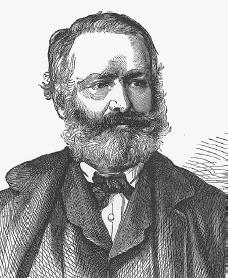
Louis Napoleon seized power on the night of December 2, 1850, and declared himself emperor. Hugo called for the people to fight back, and many were killed in this process. Hugo's involvement in the events put his life in danger. Juliette saved the poet, found him shelter, and organized his escape to Brussels, Belgium. From there he went to the British Channel islands of Jersey and Guernsey.
In November 1853 Hugo's anti-Napoleonic volume, Les Châtiments, was published in Belgium. Though banned in France, the books were smuggled in and widely distributed. The final edition of Les Châtiments, with numerous additions, was published in 1870, when Hugo returned to Paris after the fall of Napoleon III.
Hugo's mysticism
During Hugo's long absence from France, he explored the dark side of his personality. There were many séances (meetings of people attempting to contact the dead) in his home. He believed that he was communicating with famous spirits. The "visit" that touched him most was that of his favorite daughter, Léopoldine, who had tragically drowned in the Seine with her young husband in 1843.
Indeed, Hugo's family was doomed with many tragedies. While his life in England energized his poetry, his wife and children became depressed. They longed for their friends and the familiar surroundings of Paris. His daughter, Adèle, withdrew into a fantasy world until at last she ran away from home. Hugo continued his experiments with the supernatural until stopped by the fragile mental state of his son, Charles. Hugo's wife left him to live in Brussels, where she died in 1868. Only Juliette remained loyal during the seventeen years the poet spent in England.
In 1856 Hugo published Les Contemplations, a work described as the progression of life from infancy to its end, complete with all of the emotional experiences that happen to a person during this process. Many of these poems predict Hugo's next major work La Légende des siècles (1859), conceived as part of an enormous uncompleted work whose mission was to "express humanity." Hugo dreamed of an all-inclusive vast poem. It would show that man and his soul were basically good and that the human spirit would come out and away from its concern with material things.
In 1862 Hugo published Les Misérables, a major novel, the work of many years. His guiding interest was a social and humanitarian concern for the disadvantaged. The book was not just an adventure story but a love story and a mystery as well. It solidified Hugo's concern for people who were treated unfairly in society and once again amazed the reading public with the range of his literary powers.
When Victor Hugo died in Paris on May 22, 1885, he was a time-honored man, crowned with worldwide glory, still enthusiastic and emotionally devoted to the last.
For More Information
Maurois, André. Olympio: The Life of Victor Hugo. New York: Harper, 1956.
Robb, Graham. Victor Hugo: A Biography. New York: Norton, 1997.
Smith Dow, Leslie. Adèle Hugo: La Misérable. Fredericton, NB: Goose Lane, 1993.
User Contributions:
Comment about this article, ask questions, or add new information about this topic:.
Victor Hugo: The poet, artist and activist
Google Doodle celebrates the author of Les Miserables.

Considered the greatest and best known French writer of all times, Victor-Marie Hugo was born in Besancon, eastern France , on February 26, 1802.
From an early age, he showed a commitment to raising social justice issues and giving voice to the oppressed, as well as standing against capital punishment.
Keep reading
Mandela’s world: a photographic retrospective of apartheid south africa, portrait by gustav klimt sells for $32m at vienna auction, uk returns looted ghana artefacts on loan after 150 years, fire engulfs iconic stock exchange building in denmark’s copenhagen.
Hugo was born three years after Napoleon Bonaparte had seized power, and two years before he declared France an empire.
He studied law, though he never committed to legal practice. Encouraged by his family, he embarked on a career in literature .
Coming of age after Napoleon’s defeat, Hugo began his life as a poet and a writer and soon became a key figure in the development of French Romanticism.
One of his very famous works is the novel Les Miserables , which he began in 1845 but did not complete until 1862. It’s considered one of the greatest novels of the 19th century. For many, he captured the humanity of those who were condemned to marginality.
On June 30, a Google Doodle was created in his honour and featured across North and South America, Europe, parts of Asia and Australia.
Les Miserables
Through Les Miserables , Hugo examined the history of France, delving into issues such as poverty, politics, moral philosophy, justice and religion.
On June 5, 1832, the death of General Lamarque sparked a rebellion against the monarchy which was quickly and brutally repressed.
This would provide the inspiration for the student revolt at the centre of Les Miserables . “We shall have a republic one day,” he argued, “and when it comes of its own free will, it will be good. But, let us not harvest in May fruit which will not be ripe until July; let us learn to wait … We cannot suffer boors to bespatter our flag with red.”
Politically influential
As a public figure, he was politically influential.
Hugo was elevated to the peerage by King Louis and entered the Higher Chamber as a pair de France, a designation of high distinction applied to a small number of the French nobility.
He spoke against the death penalty and social injustice. Hugo raised to political fame after the February revolution and was ultimately elected as a representative of Paris.
When Napoleon III took complete power in 1851, Hugo openly declared him a traitor to France.
![victor marie hugo biography Cover of book Les Miserables [Apic/ Getty Images]](https://www.aljazeera.com/wp-content/uploads/2017/06/a914e865ddf34705abf5690865d8ad31_6.jpeg)
He moved to Brussels, then Jersey, from where he was expelled for supporting a newspaper that criticised Queen Victoria. He settled in Saint Peter Port, Guernsey, where he would live in exile from October 1855 until 1870.
Lasting impact
While in exile, he published his political pamphlets against Napoleon III.
They were banned in France but they had a strong impact there.
His work also left a lasting impression on writers such as Charles Dickens, Fyodor Dostoevsky, and Albert Camus.
He died in Paris in 1885, and he became the first person to be buried in the Pantheon, a former church designed by 18th-century architect Jacques-Germain Soufflot and often compared in style to St. Paul’s Cathedral in London or the US Capitol building in Washington.
More than two million people attended his funeral, one of the largest mass mobilisations ever seen in Paris, and more than the city’s total population at the time.
FAMOUS AUTHORS
Victor Hugo

A prominent literary figure during the nineteenth century Romantic Movement in France was Victor Marie Hugo. He was an eminent French novelist, poet, playwright and essayist. It was his poetry that first earned him fame in the literary world and later his novels and plays brought him recognition. His notable works include Les Contemplations, Les Misérables and Notre-Dame de Paris .
Born on February 26, 1802, in Besançon, France, Hugo was the son of Joseph Léopold Sigisbert Hugo, a Napoleon army officer and Sophie Trébuchet, a Catholic Royalist. It was a reign of political chaos and upheaval in his childhood. Two years after his birth Napoleon came to power and his father was a huge supporter of the Emperor. On the contrary, his mother had opposing political and religious views as that of her husband and the perpetual travel entailed by his job deepened the rift in their marriage. Sophie temporarily separated from her husband and moved to Paris with her children. Growing up under his mother care, Hugo’s early poetry and fiction reflect his mother’s firm belief in monarchy and Catholic faith. However, the events preceding the French Revolution of 1848 radically changed his views. He became a strong proponent of Free-thought and Republicanism.
Hugo spent his adolescence years writing verse tragedy and poetry. In 1819, he and his brother founded a periodical, the Conservateur Littéraire . A few years later he published a collection of poems, titled Odes et Poésies Diverses , which earned him royal pension from Louis XVIII. It was not until the publication of Odes et Ballades , that not only the fluency of his poetry was appreciated but he was grown in stature for his expert lyrical craftsmanship. His political stand wavered as he made acquaintance with liberal writers. He soon realized the injustices done by monarchist regime and wrote in favor of the Republicanism.
He married to his childhood friend and lover Adèle Foucher in 1822 and the very next year published his debut novel, Han d’Islande . It was previously published anonymously in the form of four pocket-sized volumes. Shortly afterwards, the book was translated in English and Norwegian language. His second novel, Bug-Jargal , appeared in 1926, which narrates the story of friendship between a French army officer and an enslaved African prince. Similar to young writers of his era, Hugo was highly inspired by the most celebrated literary figure, François-René de Chateaubriand, during nineteenth century Romanticism movement. He aspired to become like his idol and furthered the cause of the literary movement. During late 1820’s he began to produce more mature works including Le Dernier jour d’un condamné . It reflects his acute social conscience that later influenced other pre-eminent literary figures including Fyodor Dostoevsky, Albert Camus and Charles Dickens .
In 1831, one of Hugo’s major works, Notre-Dame de Paris , appeared. The poignant story is set in the 15 th century Paris and centered on the Notre Dame Cathedral. This French Romantic and Gothic novel attained instant success upon its publication and guilted the concerned authority into restoring the beauty of Notre Dame Cathedral. Subsequently, Hugo began to work on major work of fiction that underlines the miserable state of affairs in France and the social injustices faced by the people belonged to lower echelon of society. It took seventeen years for a masterpiece like Les Misérables (1862) to be recognized and published. It became a landmark in the French history for addressing certain issues that were later raised in the National Assembly of France. In 1885, Victor Hugo died of pneumonia at the age of 83.
Buy Books by Victor Hugo

Recent Posts
- 10 Famous Russian Authors You Must Read
- 10 Famous Indian Authors You Must Read
- 10 Famous Canadian Authors You Must Read
- Top 10 Christian Authors You Must Read
- 10 Best Graphic Novels Of All Time
- 10 Best Adult Coloring Books Of All Time
- 10 Best Adventure Books of All Time
- 10 Best Mystery Books of All Time
- 10 Best Science Fiction Books Of All Time
- 12 Best Nonfiction Books of All Times
- Top 10 Greatest Romance Authors of All Time
- 10 Famous Science Fiction Authors You Must Be Reading
- Top 10 Famous Romance Novels of All Time
- 10 Best Children’s Books of All Time
- 10 Influential Black Authors You Should Read
- 16 Stimulating WorkPlaces of Famous Authors
- The Joy of Books
- Art History
- U.S. History
- World History
Victor Hugo: A Titan of Literature and Social Change
Victor Hugo, a name synonymous with literary genius and social activism, stands as one of the most iconic figures in the annals of literature and the history of France. Born on February 26, 1802, in Besançon, France, Hugo’s life journey was a remarkable tapestry of literary innovation, political advocacy, and profound empathy for the human condition. From his early works that challenged the norms of his time to his later involvement in championing social justice, Hugo’s legacy remains an enduring testament to the power of words to both inspire and effect change. In this exploration of Victor Hugo’s life and contributions, we delve into the remarkable odyssey of a man who, through his pen and his principles, became a titan of literature and a catalyst for social transformation.
Early Life and Family
Born into a family with a military background, Hugo’s early years were marked by the constant mobility associated with his father’s career in Napoleon’s army. General Joseph-Léopold-Sigisbert Hugo’s postings and deployments led the family to move frequently, exposing young Victor to the ever-changing landscapes and societies of post-revolutionary France. This nomadic existence not only shaped his perception of the world but also instilled in him a deep appreciation for the transient nature of life, a theme that would echo throughout his literary works.
The tension within Hugo’s family was not limited to the uncertainties of their frequent relocations. It also stemmed from the ideological divide between his parents. His mother, Sophie Trébuchet, was a staunch royalist, fiercely loyal to the Bourbon monarchy. In contrast, his father’s military career was aligned with the revolutionary and Napoleonic ideals. This stark contrast in political views within his own household would later influence Hugo’s complex and evolving political stance.
Despite the challenges and instability of his early life, Hugo displayed a prodigious talent for literature from a young age. This innate gift was nurtured by his mother, Sophie, who introduced him to the world of literature and the arts. She instilled in him a deep love for storytelling, the written word, and the power of imagination. This early exposure became the wellspring of his lifelong passion for writing and creativity.
At the remarkably young age of 20, Hugo achieved a significant literary milestone by publishing his first collection of poetry, “Odes et Poésies Diverses.” The publication of this debut work was not only a testament to his literary talent but also a turning point in his life. It attracted the attention of King Louis XVIII, who recognized Hugo’s literary promise and awarded him a royal pension. This early recognition provided financial stability, allowing Hugo to pursue his literary aspirations with greater freedom.
Victor Hugo’s early life was a complex interplay of family dynamics, political contrasts, and artistic awakening. The juxtaposition of his family’s military background with his growing affinity for literature, nurtured by his mother, set the stage for his remarkable literary career. His experiences of mobility and the ideological conflicts within his family would shape his worldview, contributing to the rich tapestry of themes and ideas that would later characterize his literary works.
Rise to Literary Prominence
Victor Hugo’s rise to literary prominence was marked by a pivotal moment in the trajectory of French literature. His transition from conventional literary norms to becoming a torchbearer for the Romantic movement was characterized by several noteworthy works and a transformation in his artistic sensibilities.
The turning point in Hugo’s career came with the publication of his play “Cromwell” in 1827. While the play itself was not a commercial success, its preface became a manifesto for the emerging Romantic literary movement. In this preface, Hugo passionately championed the idea of artistic freedom and the need to break away from classical conventions. He argued for the artist’s right to express individuality, emotion, and imagination without the constraints of established rules. This call for artistic liberation struck a chord with fellow writers and intellectuals of the time, and Hugo’s preface became a rallying cry for the Romantic literary movement in France.
During this period, Hugo’s creative output was prolific and marked by a departure from conventional literary norms. He began to explore themes and styles that would set him apart from his contemporaries. This phase of his career also saw the emergence of some of his most famous and enduring works.
One such masterpiece was “The Hunchback of Notre-Dame,” published in 1831. This novel was an immediate success and had a profound impact on French literature. Hugo’s vivid portrayal of the Notre-Dame Cathedral in Paris and his intricate character development, particularly the multi-dimensional protagonist Quasimodo, captured the imagination of readers. The novel not only showcased Hugo’s storytelling prowess but also brought attention to the value of Gothic architecture in Paris, influencing efforts for its preservation.
“The Hunchback of Notre-Dame” not only solidified Hugo’s status as a prominent literary figure but also marked a significant departure from the neoclassical literary conventions of the time. It embraced the principles of Romanticism, emphasizing individualism, emotion, and a fascination with history and the exotic. Hugo’s willingness to challenge established norms and experiment with new styles set the stage for his further evolution as a literary giant.
Victor Hugo’s rise to literary prominence was characterized by his embrace of the Romantic literary movement and his willingness to break away from classical conventions. His manifesto in the preface of “Cromwell” paved the way for a new era in French literature, one that celebrated artistic freedom and emotional expression. “The Hunchback of Notre-Dame” was a defining work that showcased his storytelling genius and cemented his status as a literary luminary. This period of his career laid the foundation for his future masterpieces and his active involvement in political and social issues, making him a prominent voice in the intellectual and literary landscape of France.
Personal Tragedies and Artistic Evolution
One of the most devastating events in Hugo’s life was the untimely death of his beloved daughter, Léopoldine, in 1843. Léopoldine, along with her husband, drowned in a tragic boating accident on the Seine River. This heart-wrenching loss had a profound and lasting impact on Hugo, casting a shadow of grief that would linger throughout his life.
The death of Léopoldine marked a pivotal moment in Hugo’s writing and worldview. It was as if the floodwaters of sorrow had breached the levees of his heart and unleashed a torrent of emotions that would find expression in his literary works. This personal tragedy served as a catalyst for a deeper exploration of themes related to human suffering, love, loss, and the fragility of life itself.
Hugo’s writings following this tragedy took on a more introspective and contemplative tone. He began to grapple with the profound questions of existence and the human condition. His work began to resonate with a heightened sense of empathy and a deeper understanding of the depths of human suffering. These themes would become central to his later works, most notably in his magnum opus, “Les Misérables,” published in 1862.
“Les Misérables” stands as a testament to Hugo’s artistic evolution and his enduring commitment to addressing social injustice. The novel delves into the lives of its characters, particularly Jean Valjean and Fantine, who represent the marginalized and downtrodden of society. Hugo’s exploration of themes such as poverty, inequality, redemption, and the struggle for justice was informed by the personal grief he experienced in the wake of his daughter’s death.
In this masterpiece, Hugo weaves a complex narrative that interlaces the personal and the societal, the individual and the collective. He uses his characters to shine a light on the injustices and hardships faced by the poor and marginalized in post-Napoleonic France. Through the character of Jean Valjean, Hugo explores the transformative power of compassion and the possibility of redemption, themes that had become deeply meaningful to him in the wake of personal tragedy.
In essence, the death of Léopoldine was a crucible that forged Victor Hugo’s artistic evolution. It compelled him to delve deeper into the human experience, to confront the stark realities of suffering and injustice, and to use his pen as a force for social change and compassion. “Les Misérables” remains a testament to his enduring commitment to these ideals and stands as a literary masterpiece that continues to inspire and resonate with readers worldwide.
Political Involvement and Exile
Victor Hugo’s political involvement and his principled stance on social issues were integral components of his identity and legacy. As the 1840s dawned, he transitioned from being a literary giant to becoming a prominent voice in the political landscape of France.
Hugo’s entry into politics was marked by his election to the French National Assembly in 1848, a position that provided him with a platform to advocate for his deeply-held convictions. He used this political platform to address a wide range of pressing social issues that were close to his heart.
One of the central causes Hugo championed was the abolition of the death penalty. He vehemently opposed capital punishment, considering it a cruel and inhumane practice that violated the principles of justice and human rights. His advocacy for the abolition of the death penalty was both heartfelt and influential, contributing to a broader public debate on this issue.
Beyond his stance on the death penalty, Hugo’s political activism extended to other areas of social justice. He advocated for the rights of women and highlighted the need for gender equality, which was a pioneering and progressive stance for his time. Additionally, he emphasized the importance of education as a means to uplift society and combat ignorance and inequality.
However, Hugo’s outspoken opposition to the authoritarian rule of Louis-Napoleon Bonaparte, who staged a coup d’état in 1851 and later became Napoleon III, marked a turning point in his political career. He publicly condemned the coup and refused to swear allegiance to the new regime. As a result, he faced persecution and the threat of imprisonment.
To escape political persecution, Hugo went into voluntary exile in 1851, first seeking refuge in Belgium and later settling on the island of Guernsey in the English Channel. This period of exile, which lasted nearly two decades, was characterized by both personal isolation and intense political reflection.
During his exile, Hugo produced some of his most significant and enduring works. Foremost among them was “Les Misérables,” published in 1862. This epic novel, which explored themes of poverty, justice, redemption, and the plight of the marginalized, served as a powerful indictment of the social and economic injustices of 19th-century France. Through his characters and their struggles, Hugo laid bare the stark realities of a society rife with inequality.
Victor Hugo’s political involvement and principled advocacy for social justice were defining elements of his life. His election to the National Assembly, his opposition to the death penalty, and his commitment to women’s rights and education demonstrated his unwavering dedication to the welfare of society. However, his refusal to bow to the authoritarian rule of Napoleon III led to his exile, during which he authored some of his most influential works, including the timeless masterpiece “Les Misérables.” Hugo’s legacy as a writer and a political activist continues to inspire and resonate with those who champion the cause of justice and human rights.
Final Years and Legacy
Upon his return to France in 1870, after nearly two decades of voluntary exile, Hugo was hailed as a national hero. His triumphant return was a reflection of the deep respect and admiration he had earned from the French people for his literary contributions and his principled political stance.
Hugo’s involvement in political and social causes continued unabated during this period. He remained a vocal advocate for issues such as the abolition of the death penalty, gender equality, and the rights of the marginalized and oppressed. His writings and speeches resonated with a broad spectrum of society, and his words had the power to inspire and mobilize.
In addition to his political activities, Hugo’s literary creativity remained undiminished in his later years. He continued to produce significant works, including “Ninety-Three” (1874), a historical novel set during the French Revolution. This novel, like much of his writing, explored themes of justice, morality, and the human condition within the context of historical upheaval.
Hugo’s death on May 22, 1885, marked the end of an era in French literature and politics. The nation mourned the passing of a literary giant and a beloved figure who had left an indelible mark on both the world of letters and the broader cultural and social landscape.
Victor Hugo’s legacy is one of enduring significance. He is celebrated as a literary giant whose works continue to be read and studied around the world. His writings, including “Les Misérables” and “The Hunchback of Notre-Dame,” remain powerful explorations of the human condition and social justice. Hugo’s advocacy for human rights, social reform, and the abolition of the death penalty had a profound impact on the political discourse of his time and continue to inspire activists and advocates for justice today.
Victor Hugo’s legacy transcends the boundaries of time and place. He is remembered not only for his literary genius but also for his unwavering commitment to the principles of liberty, equality, and fraternity. His words and actions continue to resonate, reminding us of the enduring power of literature and the potential for individuals to effect positive change in society.
Newest Additions
- The Beheading of John the Baptist
- Jesus Sends Out His Twelve Apostles
- The Miracle of Healing: Jesus and the Paralytic
- Parables of Wisdom: The Teachings of Jesus
- Jesus’ Response to John’s Disciples
Copyright © 2020 · Totallyhistory.com · All Rights Reserved. | Terms of Use | Privacy Policy | Contact Us
Victor Hugo
Feb 26, 1802 - may 22, 1885, the grinning man: origins, victor hugo: a monumental french writer, centre des monuments nationaux (cmn), discover this artist, related works from the web, lace and ghosts (1856), www.wikiart.org lace and ghosts, 1856 - victor hugo - wikiart.org, silhouette fantastique (1854), www.wikiart.org silhouette fantastique, 1854 - victor hugo - wikiart.org, the wave or my destiny (1857), www.wikiart.org the wave or my destiny, 1857 - victor hugo - wikiart.org, the mouth of darkness (1856), www.wikiart.org the mouth of darkness, 1856 - victor hugo - wikiart.org, gavroche a 11 ans, en.m.wikipedia.org file:victor hugo gavroche a 11 ans.jpg - wikipedia, the king of the auxcriniers (1864), www.wikiart.org the king of the auxcriniers, 1864 - victor hugo - wikiart.org, ruined aqueduct (1850), www.wikiart.org ruined aqueduct, 1850 - victor hugo - wikiart.org, allix album, fr.wikipedia.org album allix — wikipédia, calling card (1855), www.wikiart.org calling card, 1855 - victor hugo - wikiart.org, the cellist (1856), www.wikiart.org the cellist, 1856 - victor hugo - wikiart.org, “forty is the old age of youth; fifty the youth of old age.”, more artists, maxime du camp, achille devéria, eugène viollet-le-duc, stéphane mallarmé, théophile gautier, pierre corneille, more mediums, 1,116 items.
Encyclopedia of Humanities
The most comprehensive and reliable Encyclopedia of Humanities
Victor Hugo
We explore the life of Victor Hugo and his main literary works. In addition, we discuss why he is regarded as one of the major figures of French and European literature.
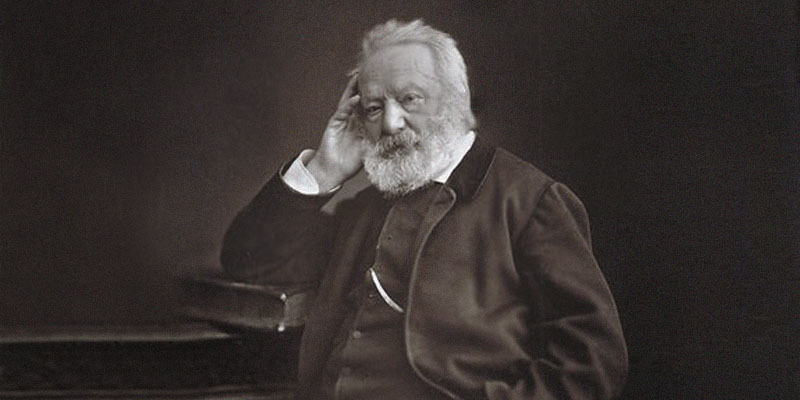
Who was Victor Hugo?
Victor Hugo was a French novelist, poet and playwright, considered one of the greatest exponents of French literature and one of the most renowned intellectuals of the 19th century. His novels Les Misérables and The Hunchback of Notre-Dame are among the most celebrated and best-known works in European literature.
Brother of writers Eugène and Abel Hugo, Victor was also a political figure deeply committed to France and its history , and a fervent opponent of Napoleon III and the Second French Empire. For this reason, his work not only encompasses literary fiction, but political and moral speeches, as well as travel chronicles.
Victor Hugo was a central figure of European Romanticism . His work was acclaimed by writers, intellectuals, and the general French populace alike. Upon his death, the nation honored him with a state funeral, and he was buried in the Panthéon in Paris.
- See also: Homer

Birth and youth of Victor Hugo
Victor-Marie Hugo was born on February 26, 1802, in the town of Besançon, in Eastern France. He was the youngest of the three sons of General Joseph Léopold Sigisbert Hugo (1773-1828), battalion commander of the Dubois imperial regiment, and his wife Sophie Trebuchét (1772-1821). His two older brothers were Abel (1798-1855) and Eugène (1800-1837).
His early years were marked by frequent moves due to his father’s position in the Napoleonic army: Paris, Elba, Naples, and Madrid were among some of the places young Victor got acquainted with during his childhood. His mother, however, always stayed in Paris, as the couple did not have a very stable relationship.
In 1813, the couple finally separated as a result of a love affair between his mother and General Victor Lahorie, Victor Hugo's godfather, to whom he owed his name.
These were unstable times for the Hugo brothers, who alternated between their father and mother’s homes, until Napoleon's defeat in 1815, which gave them greater stability. That year, Victor and his brother Eugène entered the Pension Cordier and then the Lycée Louis-le-Grand , where they studied until 1818. Victor then continued his studies at the University of Paris, in the field of law .
During those youthful years, Victor discovered his literary vocation in a self-taught way : he filled entire notebooks with verses and kept personal diaries in which, at just fourteen, he wrote: "I shall be Chateaubriand or nothing". His ambitions were exceptionally high, and his mother and his brother Eugène were his faithful readers.
Thus, in 1817, he participated in a poetry contest sponsored by the French Academy , receiving an honorable mention for his poem Trois lustres à peine . In 1819, he won his first poetry prizes awarded by the Floral Games of the Academy of Toulouse, and another in 1820 for his poem Moïse sur le Nil .
In 1819, encouraged by his mother and his recent successes, Victor founded the literary periodical Le Conservateur littéraire along with his brothers , which published the earliest essays of poets Alphonse de Lamartine and André de Chénier. The publication ceased to exist in 1821, the same year his mother died suddenly.
Marriage and early publications
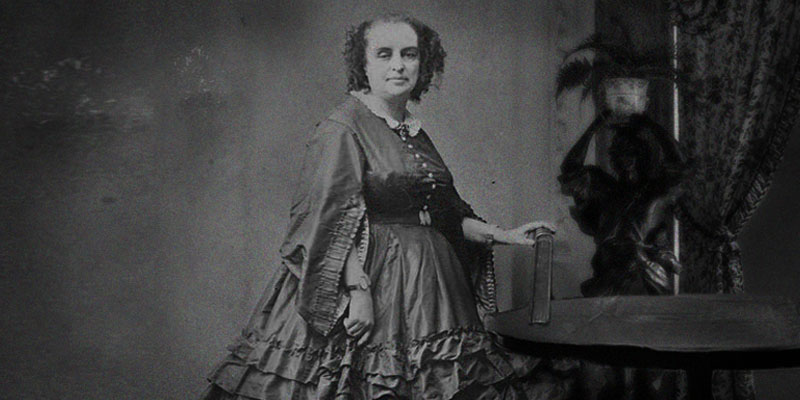
At the time of his mother's death, Victor Hugo was courting the young Adèle Foucher, daughter of friends of his parents’ and childhood friend of his. He wrote to her around 200 love letters even though his brother Eugène was also in love with her .
In 1822, the successful publication of Victor's first collection of poems, Odes et poésies diverses , earned him an annual pension of one thousand francs from King Louis XVIII. Counting on this income, Victor felt encouraged to ask Adèle in marriage. At the age of 20 and with 1,500 copies of his first book sold, Victor Hugo married the woman who would be his wife for forty-six years .
His brother Eugène plunged into a deep depression due to heartbreak. Later on, he manifested a mental illness that forced him to spend the rest of his days in an asylum, until his death in 1837.
Victor and Adèle shared a close bond, which brought five children into the world : Leopold, who died some weeks after his birth, Léopoldine (1824-1843), Charles (1825-1871), François-Victor (1828-1873), and Adèle (1830-1915). Following his marriage, Victor Hugo began to write his earliest fiction works.
I n 1823 he published his first novel, Han d'Islande (Han of Iceland ) , which was met with little enthusiasm. A positive review by author Charles Nodier (1780-1844), however, led to a friendship between the two writers, which opened for Victor Hugo the doors of the Bibliothèque de l'Arsenal , where the Cénacle literary group gathered, the cradle of French Romanticism.
Throughout 1824, he collaborated in the monthly publication La Muse Française (1823-1824) , the official dissemination channel of the Romantic literary movement, and published a new collection of verses: Nouvelles Odes (New Odes), dedicating some poems to his father. He also published Bug-Jargal , a novel on which he had begun working when he was just 16.
In 1827 his first play, Cromwell , came out, which broke with the classical dramatic tradition and consisted of 6,000 verses. Although the play was never performed in the theater, it was the content of its preface that caused a literary stir. This text is considered the foundation stone of French Romanticism.
The following year, his father died . Yet, the bereavement did not stop Victor Hugo's creative streak. That same year he published another collection of poems Odes et Ballades (Odes and Ballads), and the novel Le Dernier Jour d'un Condamné (The Last Day of a Condemned Man). The following year saw the release of Les Orientales , a collection of poems characterized by romantic exoticism. In 1830, the romantic drama Hernani was published, followed in 1831 by Marion de Lorme and Notre-Dame de Paris (The Hunchback of Notre-Dame), a novel that definitively catapulted Victor Hugo into fame.
Literary fame of Victor Hugo
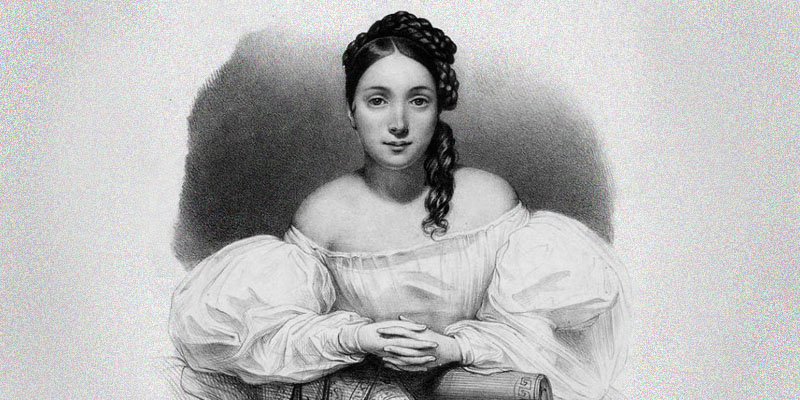
Literary acclaim brought the Hugos new friends , such as painter Eugène Delacroix (1798-1863), playwright Alfred de Musset (1810-1857), historian Prosper Mérimée (1803-1870), poet Alphonse de Lamartine (1790-1869), and literary critic Charles Augustin Sainte-Beuve (1804-1869), with whom Adèle had an affair in 1831.
Victor Hugo also frequented composers Hector Berlioz (1803-1869), Franz Liszt (1811-1886), and Giacomo Meyerbeer (1791-1864), as well as his childhood idol, French prose writer François-René de Chateaubriand (1768-1848). Around that time, he produced several collections of poems , including his famous Les Feuilles d’automne (Autumn Leaves).
However, his real successes during those years were in the theater . The 1830 debut of Hernani turned Victor Hugo into the icon of a movement seeking to renew theatrical forms, led by poet and playwright Théophile Gautier (1811-1872) and inspired by the changes brought about by the Revolution of 1830. These were politically turbulent times, which was reflected in the arts.
Some of Hugo's works were banned by the government , including Marion de Lorme in 1829 (though it premiered in 1832) and Le roi s'amuse (The King Amuses Himself), the following year. This only magnified Hugo's stature as a revolutionary playwright.
In 1833, he met actress Juliette Drouet, the most important of his many mistresses, who would become his secretary and traveling companion. From that date until her death in 1883, Juliette devoted her life to Victor Hugo . She gave up her acting career and lived practically secluded, only for the company of the French novelist.
During those years, Hugo did not cease to produce new stage plays. In 1841, his talent was recognized by the French Academy , where he was finally accepted after three failed attempts due to objections of the opponents of Romanticism.
However, his creative streak soon came to an end: in 1843 his newlywed daughter Leopoldine and her husband drowned in an accident . This family tragedy profoundly affected Victor Hugo, who, after writing a few more verses of Les Contemplations (The Contemplations), plunged into a literary silence which lasted nearly eight years.
The Revolution of 1830, also known as the July Revolution or the Three Glorious Days, was an uprising of the middle and working classes against the autocratic government of King Charles X of France. It took place in Paris, in July 1830, when the king dissolved the parliament following elections that were unfavorable to him. In his place, the so-called "citizen king", Louis-Philippe I of France, was elected, and France adopted a liberal Constitution.
Politics and exile
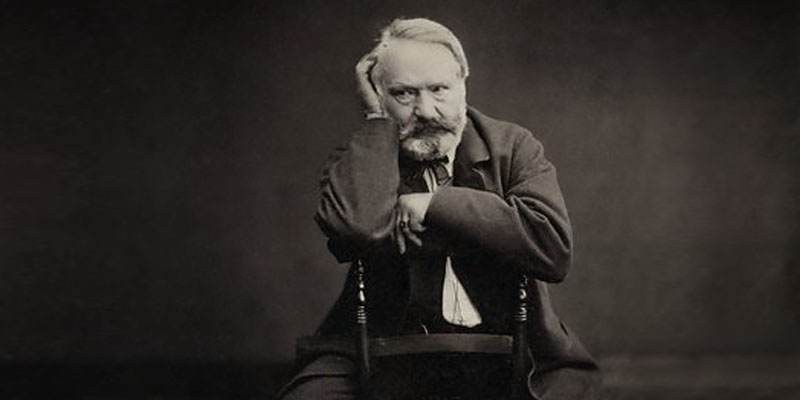
As the years went by, Victor Hugo began to distance himself from the royalist stance. Instead, he came closer to social sectors that fought for democracy and the establishment of the French Republic, eventually becoming a fervent supporter of republicanism .
This political transition began around 1844, when his literary stature allowed him to become a confidant of King Louis-Philippe I, which Victor Hugo saw as an opportunity to introduce changes to the system. In 1845, he was appointed a peer of France , a distinction reserved for relatives of the king and other distinguished personalities.
When a new revolution broke out in 1848, Victor Hugo was mayor of the eighth district of Paris and was involved in the repression of the workers' riots in June. Later, however, he openly criticized the massacre of the protesters. That same year, he founded the newspaper L'Événement , and was elected deputy to the National Assembly of the Second Republic, on the conservative side.
The Revolution of 1848 was a popular uprising that took place in Paris in February of that year, which ended the monarchy of King Louis-Philippe I and established the Second Republic. The events were triggered by the government's prohibition of the freedom of assembly, an attempt to curb the proliferation of opposition meetings. This revolution sparked the so-called "Springtime of the Peoples", which involved similar revolts throughout Europe, and was a key event in modern Western history.
In 1849, following the dissolution of the National Assembly, Victor Hugo's political stance took a definitive turn . While serving as a deputy in the National Assembly, he delivered his famous speech on misery and poverty ( Détruire la misère , "End the misery"), and broke with his former political allies, criticizing their reactionary stances, and severing ties with the then president Charles-Louis Napoléon Bonaparte.
In 1851, the republican government staged a self-coup d'état, with President Bonaparte proclaiming himself Emperor of the French under the name Napoleon III. When persecution of the opposition began, Victor Hugo fled to Brussels, Belgium . There he criticized the coup and wrote several political works, such as Napoléon le Petit (Napoleon the Little) and Histoire d’un crime (History of a Crime). He also published a collection of satirical poems: Les Châtiments (The Punishments), in 1853.
His publications led to his expulsion from Belgium , prompting Hugo to relocate to the island of Jersey in the English Channel, in the company of Juliette. He devoted himself to writing and spiritualism, partly in the hope of contacting his deceased daughter. However, in 1855, he was once again expelled, this time for openly criticizing the visit of Queen Victoria of England to France.
Victor Hugo moved to the island of Guernsey , and immersed himself in literary creation. In 1856, his work Les Contemplations (The Contemplations) came out, regarded as his magnum opus and a faithful reflection of the existential torments that afflicted him at the time.
He wrote two epic poems of a metaphysical nature : La Fin de Satan (The End of Satan) and Dieu (God), both about the confrontations between good and evil. Neither was published until after his death. He also completed the first volume of his monumental epic-historical poem La Légende des siècles (The Legend of the Ages), with the second and third volumes coming out years later, in 1877 and 1883, respectively.
In 1859, the French government proclaimed an amnesty and a return to France for political prisoners and exile s, albeit under the same system of government. Nevertheless, Hugo and other French expatriates rejected the proposal.
Les Misérables
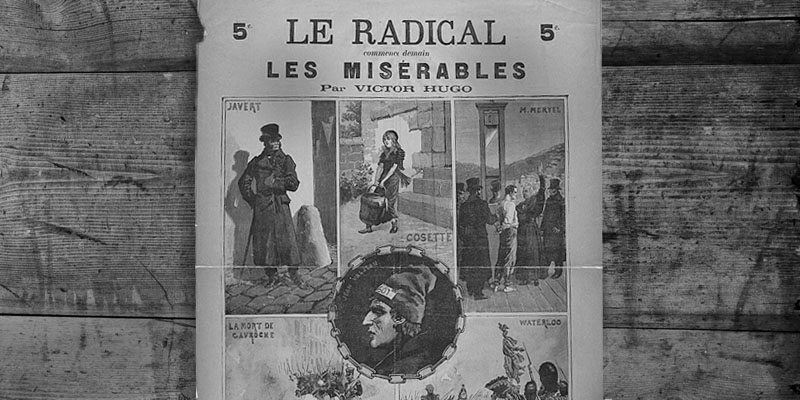
Shortly after, Victor Hugo returned to fiction. He took up an abandoned novel Les Misérables, published in 1862 , which was to become his most famous work. The novel was an immediate success in France and was quickly translated into other languages, earning him immense international fame.
Regarded as one of the greatest novels of 19th-century European literature , Les Misérables tells a story of love-hate and resentment towards society, embodied in its protagonist, Jean Valjean, sentenced to five years in prison for stealing bread to feed his family.
This work constitutes a study of the society of the time, touching upon poverty, conservatism, and classism . It also provides an account of the Parisian uprising of 1832 and the funeral of Jean Maximilien Lamarque (1770-1832), a renowned French revolutionary military figure. As such, it can be seen as a novel that is simultaneously epic, realistic, and romantic.
Les Misérables benefitted from both a massive advertising campaign and the fame that Hugo had already attained , especially following the success of Notre-Dame de Paris (The Hunchback of Notre-Dame). However, the novel met with mixed reviews, particularly from the most conservative sectors, who frowned upon the sympathetic portrayal of the revolutionaries in the text.
Some criticized the novel's excessive sentimentality, and writer Gustave Flaubert (1821-1880) lamented that the characters "all speak very well, but all in the same way" . On the other hand, authors like Charles Baudelaire (1821-1867) praised Hugo's success. The Catholic Church, in turn, banned the book, including it in its Index Librorum Prohibitorum .
Les Misérables was followed by another novel, a tribute to the people of Guernsey, entitled Les Travailleurs de la Mer (Toilers of the Sea), in 1866, and L'Homme Qui Rit (The Man Who Laughs), in 1869. However, those years were overshadowed by the news of the death of his wife, Adèle, on August 27, 1868.
In 1863, Adèle Hugo published a biography of her husband, entitled Victor Hugo raconté par un témoin de sa vie . This biography offers readers insights into Victor Hugo's thought and literary talent.
The complicated return to France
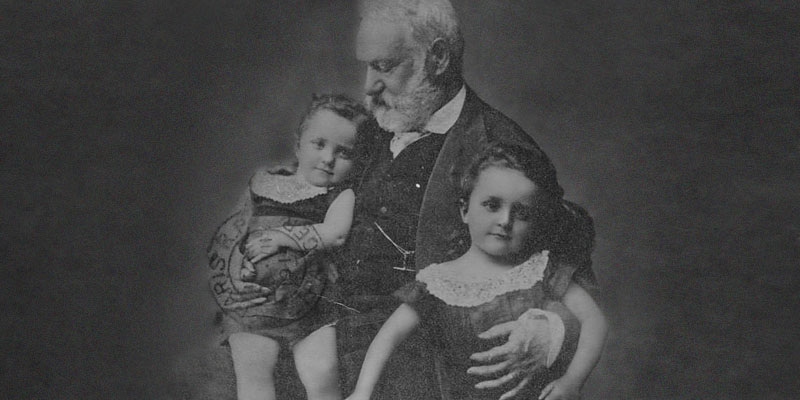
In 1870, the Franco-Prussian War broke out, resulting in the fall of the French Empire and the establishment of the Third French Republic. Victor Hugo could at last return to his homeland . In 1870, he participated in the defense of Paris, now under the republican government, and in 1871 he was elected deputy to the National Assembly, a position to which he resigned shortly after. That year, his son Charles died unexpectedly, and he had to travel to Belgium to arrange inheritance matters.
While in Brussels, the Paris Commune uprising broke out. Victor Hugo strongly criticized the subsequent brutal repression, leading to his expulsion from Paris . He sought refuge in Luxembourg, Vianden, Diekirch, and Mondorf-les-Bains, successively, for several months, during which time, he finished his poetry collection L'Année terrible .
Towards the end of 1871, he returned to Paris , where he accepted to run in the 1872 election for the Republicans. However, he was viewed as a "radical", and his proposal to pardon the communards was poorly received. That same year he returned to Guernsey, where he wrote his last novel, Quatre-vingt-treize (Ninety-three), set during the French revolutionary Reign of Terror, and published in 1874.
In 1873, he settled again in France, this time devoting himself to the upbringing of his grandchildren Georges and Jeanne. The experience was so gratifying that he wrote L'Art d'être grand-père (The Art of Being a Grandfather), a collection of lyrical poetry on childhood. Three years later, he was elected senator of the Republic, actively opposing President Patrice de Mac Mahon when he dissolved the lower house of parliament.
His health began to deteriorate. In 1878, after delivering the opening speech at the International Literary Congress, he retired to Guernsey for four months to rest. His ailments prevented any further literary production, but various poetry anthologies continued to be published during those years.
Death and legacy of Victor Hugo
In 1883, his beloved Juliette died, aged 77. Victor Hugo was over 80 years old himself. Two years later, on May 22, 1885, he died in the French capital , where he was given a state funeral.
His remains were mourned under the Arc de Triomphe, in an unprecedented funeral attended by a massive crowd of intellectuals, politicians, and ordinary people. Nearly two million people accompanied his coffin in the funeral procession to the Panthéon , his final resting place.
Victor Hugo’s literary legacy was enormous, spanning the genres of poetry, narrative, drama, political oratory, and travel chronicles . During his exile in Guernsey he also cultivated drawing and photography, leaving behind a photographic archive of almost 350 works. His towering literary stature is celebrated throughout the world, and in France he is revered as one of the major national poets.
As for his political views, Hugo was a fervent defender of the republican system , and in his speeches he strongly advocated for the fight against social segregation and inequality. He was one of the few men of his time to raise his voice for women's rights, and promoted the idea of a United States of Europe as a solution to the constant conflicts between the powers in the continent.
Over time, Victor Hugo's image became a symbol of the French republic and a national artistic icon, which inspired the French resistance during World War II . His works have been extensively translated and adapted into film, opera, animation, and television.
Major works of Victor Hugo
Victor Hugo's body of work was exceptionally extensive and varied. Among his most renowned works are:
Prose fiction
- Les Misérables (1862)
- L'Homme qui rit (The Man Who Laughs - 1869)
- Quatre-vingt-treize (Ninety-three - 1874)
- Les Feuilles d’automne (Autumn Leaves - 1832)
- La Légende des siècles (The Legend of the Ages - 1859)
- L'Année terrible (1872)
- Cromwell (1827)
- Hernani (1830)
- Napoléon le Petit (Napoleon the Little - 1852)
- Histoire d’un crime (History of a Crime - 1877)
- Barrère, J. B. (2023). Victor Hugo (French writer). The Encyclopaedia Britannica. https://www.britannica.com/
- Hugo, A. (1863). Memorias de Víctor Hugo . Trad. Nemesio Fernández Cuesta. Imprenta Las Novedades.
- Ministerio de Cultura de Argentina. (2022). Víctor Hugo, el último gigante. https://www.argentina.gob.ar/
- Telesur. (2023). Conozca la vida del escritor francés Víctor Hugo. https://www.telesurtv.net/
Explote next:
- Frida Kahlo
- Edgar Allan Poe
- Jean Monnet (1888-1979)
Was this information useful to you?
Updates? Omissions? Article suggestions? Send us your comments and suggestions
Thank you for visiting us :)

Victor Hugo
- Born February 26 , 1802 · Besançon, Doubs, France
- Died May 22 , 1885 · Paris, France (pneumonia)
- Birth name Victor Marie Hugo
- Height 5′ 10″ (1.78 m)
- Although Hugo was fascinated by poems from childhood on, he spent some time at the polytechnic university of Paris until he dedicated all his work to literature. He was one of the few authors who were allowed to reach popularity during his own lifetime and one of the leaders of French romance. After the death of his daughter Leopoldine in 1843, he started a career in politics and became member of the Paris chamber where he fought for leftist ideas. After the re-establishing of monarchy, he had to go into exile to Guernesey (1851-1870) where his literary work became more important, e.g. "Les Miserables" was written during that period. After his return to Paris he did not join politics anymore. - IMDb Mini Biography By: Volker Boehm
- Victor-Marie Hugo was born on February 26, 1802, in Besançon, France. His father, Joseph-Leopold Hugo, was a general in Napoleon's army who served as Military Governor in Italy and Spain. His mother, Sophie Trebuchet, had an affair with his father's commander, who was shot in 1812 for plotting against Napoleon. At that time young Victor studied at College Louis-le-Grand. In 1819 he founded a review, the "Conservateur Litteraire". In 1822 he published his first collection of poems, "Odes et Poesies Diverses". It gained him a royal pension from King Louis XVIII. He shot to international fame as a playwright with his play "Hernani" (1830). It played to full houses in many countries and had a lasting impact on 19th-century theatre. It also was made into an eponymous opera by Giuseppe Verdi . Hugo's play, "Le roi s'amuse" (1832), became another Verdi opera, "Rigoletto", which has been a staple of many theaters ever since. Hugo's next big theatrical hit was "Lucrezia Borgia" (1833), starring Juliette Drouet, who was a former mistress of Napoleon. In 1834 "Lucrezia Borgia" was transformed into a libretto for the eponymous opera by Gaetano Donizetti . Drouet became Hugo's life-long mistress and muse. She inspired him to write several volumes of lyrical poetry dedicated to her. She was loyal to Hugo and their relationship lasted for 50 years, until her death in 1882. She was recognized even by Hugo's wife, and was accepted in the family. At the same time Hugo had another affair with Léonie d'Aunet, who was an inspiration for his collection of poetry of an intensely sexual content. It was published as "Mme. Biard poems" in 1848. Hugo remained being a ladies man throughout his life. In 1878 he suffered from a mild stroke after having an exhaustive "game" with his maid. After recovery Hugo continued his relationship with Juliett Drouet. Hugo was an important political figure of his time. His political career was based on his support of Republicanism as a democratic form of government. In 1841 he was appointed Pair de France. He entered the Higher Chamber, where he became a strong proponent of freedom of the press. His position against the death penalty and social injustice gained him tremendous popularity in all layers of society. In 1851, when Napoleon III seized power, Hugo declared him a traitor to the Republic of France. After that, Hugo's life was in grave danger. He managed to escape to Brussels, then to the island of Guernsey, where he would live with his family in exile for almost twenty years, until 1870. After the unpopular Napoleon III fell from power, Hugo returned to the Third Republic, and was elected to the Senate. He published over 50 novels and plays during his lifetime, followed by 20 more posthumous publications. Hugo's literary works had a profound influence on such writers as Albert Camus , Fyodor Dostoevsky and Charles Dickens , among many others. "Les Misérables" (1862) became one of the most well-known novels of the 19th century and remains influential in contemporary culture. It became a popular Broadway musical, and was also adapted for film and television more that 40 times in many countries, with the best known film version being made in 1995 ( Les Misérables (1995) ) starring Liam Neeson . The 1996 animated version of his book "The Hunchback of Notre Dame" ( The Hunchback of Notre Dame (1996) ) was nominated for an Oscar. Victor Hugo was among the most important cultural figures of his time. He was also acknowledged for his political work in shaping democracy and the Third Republic. He died on May 22, 1885, in Paris. His burial ceremony was that of a statesman, and his funeral procession was attended by an estimated one million people. He was laid to rest in the Pantheon on Paris, France. - IMDb Mini Biography By: Steve Shelokhonov
- Spouse Adèle Fourcher (October 12, 1822 - 1868) (her death, 4 children)
- In 1884, just months before his death, Hugo visited the massive construction site of The Statue of Liberty. He was said to be impressed and said "The idea, it is everything".
- The publication of Les Miserables led to the shortest ever correspondence at that point in history. Hugo was in England when it was published, and therefore didn't know how successful it would be. His single-character telegraph to his publisher was simply a question mark, signifying that he was asking how the publication was going. His publisher indicated it was a hit with a single-character response: an exclamation point.
- His brother, Eugène, went mad when Hugo married Adèle Fourcher, whom the brothers had known since childhood and whom Eugène was secretly in love with. He died at Charenton Asylum on 20 February 1837.
- "Les Misérables" is the source for 48 operas; "Notre Dame de Paris" (The Hunchback of Notre Dame) is the source for 16 operas.
- Philosopher Friedrich Nietzsche included Hugo in his list of "impossible people", describing him as "a lighthouse in a sea of absurdity."
- Music expresses that which can not be said and on which it is impossible to be silent.
- Certain thoughts are prayers. They are moments when, whatever be the attitude of the body, the soul is on its knees.
- An invasion of armies can be resisted, but not an idea whose time has come.
- The left-handed are precious; they take places which are inconvenient for the rest.
- A compliment is something like a kiss through a veil.
Contribute to this page
- Learn more about contributing
More from this person
- View agent, publicist, legal and company contact details on IMDbPro
More to explore

Recently viewed

Victor Hugo Biography: The Extraordinary Life Of A Literary Legend
Victor Hugo, born on February 26, 1802, was a renowned French poet, novelist, and playwright. Considered one of the greatest literary figures of his time, Hugo’s works, such as “Les Misérables” and “The Hunchback of Notre-Dame,” continue to captivate readers worldwide with their profound themes and timeless storytelling. Join us on a journey through the life and legacy of this iconic literary genius.
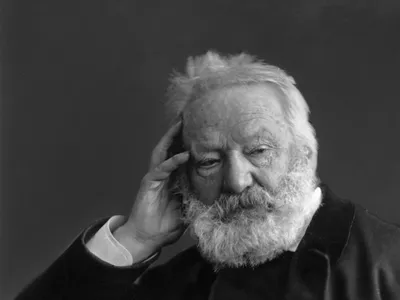
Biography Of Victor Hugo
Early life of victor hugo.
Victor Hugo Biography was born on February 26, 1802, in Besançon, France. He was raised in a family of artists and intellectuals, which greatly influenced his upbringing and creative pursuits. At the age of 13, Hugo’s family moved to Paris, where he would spend the majority of his life. In the bustling artistic and cultural capital, he was exposed to a diverse range of influences, from literature to politics, that would shape his future career as a renowned writer and social activist. Despite facing financial difficulties in his early years, Hugo’s passion for literature and his unwavering determination propelled him to become one of the most influential figures in French literature and a champion for human rights.
Family Details About Victor Hugo
Victor Hugo was born to Joseph Léopold Sigisbert Hugo and Sophie Trébuchet. He had several siblings, including Abel, Eugène, Léopoldine, Charles, François-Victor, Adèle, and Victorine. His father, Joseph Hugo, was an officer in the French army, and his mother, Sophie Trébuchet, was a socialite and artist. The influence of his parents and the unique dynamics with his siblings would later shape Victor Hugo’s life and literary career.
Victor Hugo, one of the most influential French writers of all time, had an intriguing romantic life. Let’s take a look:
Victor Hugo is currently married to Adèle Foucher. They tied the knot on October 12, 1822.
Adèle Foucher was the childhood friend of Victor Hugo, and their friendship blossomed into love. They had known each other since their early years and shared a deep connection. Adèle was known for her intelligence and beauty.
Victor Hugo had some previous relationships before his marriage to Adèle Foucher. Here is a table listing the significant others in his life:
Although these relationships were significant in different periods of his life, it was ultimately with Adèle Foucher that Victor Hugo found his true love and partner.
Career, Achievements And Controversies body {<br /> font-family: Arial, sans-serif;<br /> margin: 20px;<br /> }</p> <p>h1 {<br /> font-size: 24px;<br /> color: #333333;<br /> }</p> <p>h2 {<br /> font-size: 18px;<br /> color: #333333;<br /> }</p> <p>ul {<br /> margin-top: 10px;<br /> margin-bottom: 10px;<br /> }</p> <p>li {<br /> margin-bottom: 5px;<br /> line-height: 1.5;<br /> }</p> <p>.container {<br /> width: 80%;<br /> margin: 0 auto;<br /> }</p>
Victor Hugo was a French poet, novelist, and dramatist. He became famous through his literary works that played an important role in the Romantic movement. Hugo’s career started in the early 1800s when he began publishing volumes of poetry. In 1831, he achieved widespread fame with his novel “The Hunchback of Notre-Dame,” which brought him critical acclaim and commercial success.
Victor Hugo’s notable works include novels like “Les Misérables,” “Toilers of the Sea,” and “The Man Who Laughs.” These novels depicted social and political issues of the time, highlighting the struggles of the poor and oppressed. Hugo’s writings had a profound impact on society and helped shape public opinion on various issues.
- Hugo was honored with the French Academy’s highest literary award, the “Grand Prix de Littérature,” in 1862.
- In 1870, he received a national tribute for his immense contribution to French literature.
- Hugo was also appointed to the Belgian Royal Academy in 1845.
- One of the major controversies surrounding Victor Hugo was his political activism. He openly opposed Napoleon III and his authoritarian regime, which resulted in his exile from France for almost two decades.
- Hugo’s novel “Les Misérables” faced criticism from some conservatives who saw it as promoting revolutionary ideas and portraying the Church in a negative light.
- His personal life also raised controversies, including his extramarital affairs and unconventional relationships.
FAQ About Victor Hugo
1. who was victor hugo.
Victor Hugo was a renowned French poet, novelist, and dramatist of the 19th century. He is widely considered one of the greatest writers in French literature.
2. What Are Some Notable Works By Victor Hugo?
Some of Victor Hugo’s most notable works include:
- “Les Misérables” (1862)
- “The Hunchback of Notre-Dame” (1831)
- “Ninety-Three” (1874)
- “Toilers of the Sea” (1866)
3. When Was Victor Hugo Born And When Did He Die?
Victor Hugo was born on February 26, 1802, in Besançon, France. He passed away on May 22, 1885, in Paris, France.
4. What Is Victor Hugo Best Known For?
Victor Hugo is best known for his epic historical novel “Les Misérables,” which explores themes of social injustice, redemption, and love. This work has been widely adapted into various forms, including musicals and movies.
5. Did Victor Hugo Have Any Political Involvement?
Yes, Victor Hugo was actively involved in politics and held strong republican beliefs. He served as a senator and was a staunch supporter of democracy and social progress.
6. What Was Victor Hugo’s Impact On French Literature?
Victor Hugo played a significant role in the Romantic literary movement and heavily influenced the development of French literature. His works explored complex themes and his use of vivid imagery and poetic language revolutionized storytelling.
7. Did Victor Hugo Receive Any Awards Or Recognition For His Work?
Yes, Victor Hugo received several awards and recognition during his lifetime, including being elected to the Académie Française, the highest honor in French literature. He also received numerous other literary accolades.
8. Can You Visit Any Places Associated With Victor Hugo?
Yes, there are several places associated with Victor Hugo that can be visited. Some notable sites include his house in Guernsey, the Victor Hugo Museum in Paris, and the Victor Hugo House in Besançon.
Introducing Hussain M, the brains behind Honestreaders.com. With a passion for great authors, he's on a mission to help you navigate their works.
Recent Posts
10 Best Maya Angelou Poems You Must Read
Looking for the best poems by Maya Angelou that stir your soul and inspire your mind? Wondering which of her works encapsulate the essence of her profound wisdom and eloquent prose? In the realm...
Unveiling Brilliance: The 10 Best Books By Zig Ziglar
In the world of personal development and salesmanship, few names resonate as profoundly as Zig Ziglar. Renowned for his captivating speeches and timeless wisdom, Ziglar's books have served as guiding...

The Philosophy of Romanticism
Victor-Marie Hugo
Victor-Marie Hugo was a French poet, playwright, novelist and statesman and is considered to be amongst the greatest of French writers. He was born in Besancon, France on 26th February 1802 and died in Paris on 22nd May 1885 aged 83.
Major Works
“ Cromwell” (1827) “Notre-Dame de Paris” (1831) “Contemplations” (1856) “Les Misérables” (1862)
Biography Timeline
Victor-Marie Hugo was born on 26th February 1802 in Besancon, France. His father was Joseph Leopold Sigisbert Hugo a general in the Napoleonic army. His mother was the painter Sophie Trebuchet. Victor was the youngest of three sons.
1803: His mother Sophie temporarily separated from Léopold as she was weary of the constant moving of military life. She settles in Paris with her sons and begins a relationship with General Victor Fanneau de la Horie, Victor’s Godfather.
1807: In October the family rejoins his father, now a Colonel, in Southern Italy only to find that he has been living in secret with an Englishwoman called Catherine Thomas. Hugo is taught mathematics by Giuseppe de Samuele Cagnazzi, an Italian politician from Naples.
1808: His father moves to Spain to fight in the Peninsula War and the family return to Paris.
1810: His father is made Count Hugo de Cogolludo y Sigüenza by Joseph Bonaparte, King of Spain.
1811: The family move to Spain and Hugo and his brothers go to the Real Colegio de San Antonio de Abadschool in Madrid. His mother, now officially separated, returns to Paris.
1815: In February the sons are removed from their mother’s care by their father and sent to a private boarding school in Paris, the Pension Cordier. They also go to lectures at the Lycée Louis-Le Grand.
1816: He is influenced by the writings of Francoise-Rene de Chateaubriand and writes in his diary on 10th July “I will be “Chateaubriand or nothing”.
1817 He wins an honourable mention in a national poetry competition sponsored by the Academie Francaise who were surprised he was only fifteen.
1818: He moves in with his mother when he starts at Law School. He becomes engaged to Adele Foucher against his mother’s wishes.
1819: He and his brothers begin publishing the journal “Le Conservateur Littéraire.”
1821: His mother dies in June and his father marries Catherine Thomas a month later.
1822: His first book, “Odes et Poésies Diverses” (Miscellaneous Odes and Verses) is published and earns him a yearly pension from King Louis the Eighteenth. In October he marries Adele Foucher.
1823: His first novel, “Han d’Islande” (Han of Iceland) is published. His son Léopold-Victor is born but dies in infancy.
1824: On 28th August his daughter Leopoldine is born.
1826: “ Odes et Ballades” (Odes and Ballads) and his novel “ Bug-Jargal” are published. His son Charles is born on 4th November.
1827: His play “ Cromwell” is published which he states is free from classical restrictions and Hugo becomes the figurehead of the Romantic literary movement.
1828: On 28th October his son Francoise-Victor is born.
1829: In February his first mature work of fiction. “ Le Dernier Jour d’un Condamne ” (The Last Day of the Condemned Man) is published without the author’s name attached. His collection of poetry “Les Orientales” is also published.
1830: His play “Hernani” is published and proves very popular at the Comedie Francaise in Paris and makes him very rich. The first performances are greeted by rioting between romantics and traditionalists in the audience ( Théophile Gautier and Nerval are in the audience supporting him). His daughter Adele is born on 28th July.
1831: His novel “Notre-Dame de Paris” (The Hunchback of Notre Dame) is published which further cements his reputation and it is translated into many other languages. He publishes the poetry collection “Les Feuilles d’Automne” (The Leaves of Autumn) and begins writing the play “Marion Delorme”.
1832: His play “Le Roi S’Amuse” (The King has Fun) is first performed on 22nd November but is banned by the government after one performance. It will later be used by Giuseppe Verdi in his 1851 opera “Rigoletto”.
1833: The actress Juliette Drouet becomes his mistress, his secretary and travelling companion for the next fifty years.
1834: His short story “ Claude Gueux” is published about a real-life murderer who had been executed in France.
1835: His poetry collection “Les Chants du Crepuscule” (Songs of Twilight) is published.
1837: His poetry collection “Les Voix Interieures” (Inner Voices) is published.
1838: His play “ Ruy Blas” is published.
1840: His poetry collection “Les Rayons et les Ombres” (Beams and Shadows) is published.
1841: He is finally elected to the Academie Francaise at his third attempt.
1843: His daughter Léopoldine and her new husband are drowned in a boating accident on the River Seine on 4th September. Hugo finds out about the event by reading about it in a newspaper in a café and is devastated. His next play “Les Burgraves” is a failure.
1845: On 13th April Hugo is made a peer by King Louis Philippe and later calls himself “Vicomte Victor Hugo”. He enters the upper chamber of Parliament and begins to speak on social issues such as the removal of the death penalty, freedom of the press and self-government for Poland.
1848: After the 1848 Revolution Hugo is elected to the French National Assembly of the Second Republic as a conservative. Drawing becomes his main artistic output until 1851.
1849: He breaks with the conservatives after a speech calling for the end of misery and poverty. He goes on to demand universal suffrage and free education for all children. At the International Peace Congress in Paris he outlines his vision of a United States of Europe. He attends the funeral of Frederic Chopin whom he had been introduced to by George Sand . Although reasonably talented at music he wasn’t proficient but was friends with other greats of the day including Hector Berlioz and Franz Liszt .
1851 : He flees to Brussels to avoid execution after trying to rally the workers in an unsuccessful revolt against President Louis Napoleon (soon to be Emperor Napoleon the Third) whom he had described as a traitor to France. He publishes several pamphlets against Napoleon the Third and writes to the American abolitionist Maria Weston Chapman that slavery in the United States of America must end.
1852: The Belgian government are concerned that Hugo’s political statements would adversely affect relationships between them and France and so he had to move once again, this time to Jersey in the Channel Islands. He publishes “Napoléon Le Petit” (The Little Napoleon) in French from London.
1853: He publishes his poetry book “Les Chatiments” (The Punishments).
1855: Queen Victoria of Britain visits Paris and a satirical article about it is published in a London newspaper by French exiles. This is referred to in another newspaper in Jersey by Hugo and two others and the three of them are expelled from the Island. He moves on to live with a family at Hauteville House in Saint Peter Port in Guernsey at the end of October.
1856: His book of poetry “ Les Contemplations” is published and the proceeds from this allow him to buy the house in St Peter Port.
1859: “La Legende des Siecles” (Legend of the Ages) poetry anthology is published . He writes to the United States government to spare the life of the abolitionist John Brown. Emperor Napoleon the Third grants amnesty to all political exiles but Hugo declines to return to France.
1862: One of his most famous novels “ Les Misérables” is published concerning social injustice in 19th century France.
1866: His next novel “ Les Travailleurs de la Mer” (Toilers of the Sea) is published about a man who attempts to win approval from his father by rescuing him from his ship marooned by its captain. Although it is well received it doesn’t sell as many copies as “Les Misérables”.
1868: His wife Adèle dies and Hugo is unable to attend her funeral in Villequier, France.
1869: His next novel is “ L’Homme Qui Rit” (The Man Who Laughs) is published in April and criticises the aristocracy. He also publishes “Torquemada” a play about the Spanish Inquisition.
1870: On 14th July he plants the “Oak of the United States of Europe” in his garden at Hauteville House. During the Franco-Prussian War he makes a return to Paris. Food is scarce and he famously eats animals given to him by the Paris Zoo. Napoleon the Third is deposed and the Third Republic is proclaimed in September. Hugo is again elected to the National Assembly and the Senate.
1871: He visits Brussels in March and on 27th May the Belgian newspaper “l’Indépendance” denounces the government’s refusal to grant political asylum to the Communards threatened with imprisonment or execution. A mob force their way into his house threatening to kill him.
1872: He loses his re-election to the National Assembly.
1874: His last novel, “ Quatre-Vingt-Treize” (Ninety-Three) is published about the Reign of Terror during the French Revolution.
1876: On 30th January Hugo is re-elected to the Senate, but poor health means he returns to Guernsey. He writes “Pour Le Serbie ” (For Serbia) in his son’s newspaper “Le Rappel”.
1878: “Le Pape” (The Pope) is his political tract supporting Christianity but objecting to the rigid doctrines of the Catholic church.
1879: On 18th May he delivers a speech during a celebration on the abolition of slavery declaring that the Mediterranean Sea forms a natural divide between “ultimate civilisation and utter barbarism”.
1880: He writes “ Religions and Religion” denying the usefulness of churches. (published posthumously).
1881 : National celebrations of Hugo’s life begin on 25th June and on 27th a massive parade through the streets of Paris is held. On 28th June, Paris changes the name of the Avenue d’Eylau to Avenue Victor Hugo.
1883: His mistress, Juliette Drouet dies.
1885: In May a newspaper confirms that he is dying.
Victor-Marie Hugo died on 22nd May 1885 of pneumonia in Paris. After lying in state at the Arc de Triomphe he is given a state funeral, (described as “a veritable orgy of bad taste” by Friedrich Nietzsche ) at which over two million people attend. He was buried in the Pantheon in Paris.

Victor Hugo Biography
Victor Hugo, a renowned poet, novelist, and playwright of the Romantic Movement in 19th century France, is widely regarded as one of the greatest French authors of all time. While he was also a political statesman and human rights activist, Hugo is primarily remembered for his literary creations, particularly his poetry and novels. His works, such as ‘Les Contemplations’ and ‘Les Legende des siecles’, have earned him immense admiration in France, with his novels ‘Les Misérables’, ‘Notre-Dame de Paris’ (‘The Hunchback of Notre Dame’), and ‘Les Travailleurs de la Mer’ being among his most popular. Through his writing, Hugo delved into the political and social issues of his era, and his books have been translated into numerous languages. Additionally, Hugo’s artistic talents extended beyond writing, as he produced over 4,000 beautiful drawings. While he initially embraced the Catholic Royalist faith, he gradually became a freethinking republican during the events leading up to the French Revolution. As a prominent supporter of the Romantic Movement, Hugo also advocated for social causes, including the abolition of capital punishment, and played a significant role in establishing the Third Republic and democracy in France.
Quick Facts
- French Celebrities Born In February
- Also Known As: Victor-Marie Hugo
- Died At Age: 83
- Spouse/Ex-: Adèle Foucher
- Father: Joseph Léopold Sigisbert Hugo
- Mother: Sophie Trébuchet
- Siblings: Abel Joseph Hugo, Eugène Hugo
- Children: Adèle, Charles, François-Victor, Léopold, Léopoldine
- Born Country: France
- Quotes By Victor Hugo
- Died on: May 22, 1885
- Place of death: Paris, France
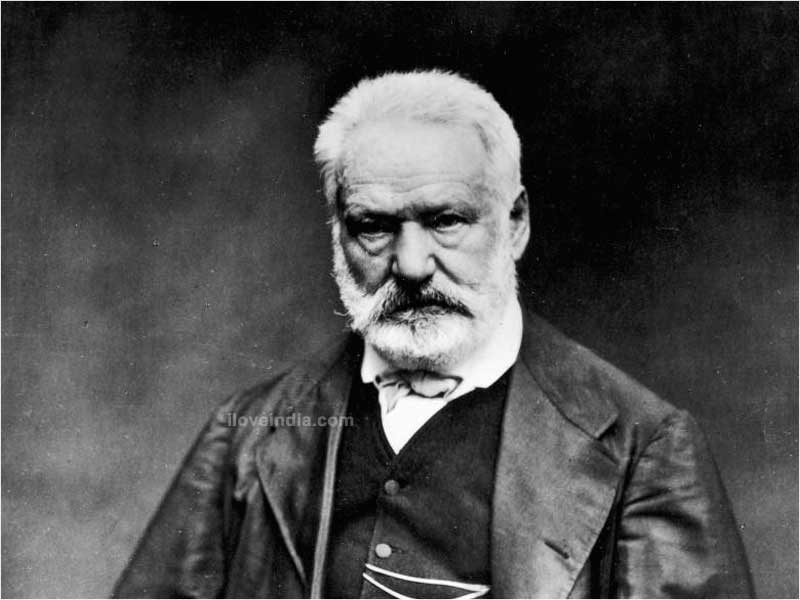
Childhood & Early Life
Victor Hugo was born on 26 February 1802 in Besancon, France, to Joseph Leopold Sigisbert Hugo and Sophie Trebuchet. He was the third-born and the youngest son of the family. His elder siblings were Abel Joseph Hugo and Eugene Hugo.
His father, Joseph was a freethinking republican. He was an important officer in the army of Napoleon and considered him his idol. On the other hand, his mother Sophie was a devoted Catholic Royalist. The political incompatibility of his parents adversely affected their family life.
Joseph’s job required him to move constantly from one place to another. Travelling with his father to different countries, young Hugo developed a liking for nature and beauty. By 1803, his mother was exhausted of travelling and decided to stay back in Paris while his father went to Italy. She took up the responsibility of Victor’s education and successfully imbibed in him the Catholic faith.
Victor Hugo was inspired by François-René de Chateaubriand, the founder of Romanticism in French literature. In 1822 at the age of 20, his first volume of poetry ‘Odes et Poésies Diverses’ was published which established his reputation as a poet and earned him a royal pension from Louis XVIII. Four years later, his second collection of poetry ‘Odes et Ballades’ (1826) strengthened his reputation further.
Meanwhile, his first novel ‘Han d’Islande’ was published in 1823, followed by his second novel ‘Bug-Jargal’, published in 1826. From 1829 – 1840, he published five collections of poetry: ‘Les Orientales’ (1829); ‘Les Feuilles d’automne’ (1831); ‘Les Chants du crépuscule’ (1835); ‘Les Voix intérieures’ (1837); and ‘Les Rayons et les ombres’ (1840).
In 1829, he also published a fiction ‘Le Dernier jour d’un condamné’ (The Last Day of a Condemned Man), his first mature work. The work was based upon the real life story of a murderer and reflected the acute social conscience.
His first full-length book was ‘Notre- Dame de Paris’ (The Hunchback of Notre Dame), published in 1831. It was immensely successful and was promptly translated to a number of foreign languages. It made the Cathedral of Notre Dame and other Renaissance buildings popular among the people of Europe and encouraged their preservation.
Around 1830, he embarked on writing the most important novel of his literary career: ‘Les Misérables’. The work explored social misery and injustice. After several years of writing followed by planned marketing campaigns by the Belgian publishing house Lacroix and Verboeckh, the novel was finally published in 1862. The success of the novel turned his fortune.
In 1841, after three futile attempts, he was elected to the Académie française. Thereafter, he became more and more involved in French politics, supporting the Republic form of government. King Louis-Philippe promoted him and made him a part of the Higher Chamber as a ‘pair de France’.
After the Revolution of 1848 and the establishment of the Second Republic, he was elected to the Parliament as a conservative. A few years later, when Napoleon III seized power in 1851 and established an anti-parliamentary constitution, he objected openly calling him a traitor. As a result he was exiled; he settled in Guernsey and lived there until 1870.
During his exile, he published two famous political pamphlets against Napoleon III, ‘Napoléon le Petit’ and ‘Histoire d’un crime’. Although the pamphlets were banned in France, they managed to create a strong impact there nonetheless.
In 1859, when amnesty was granted to all political exiles by Napoleon III, he chose not to return to France and imposed upon himself a self-exile. He was determined to return only when the Napoleon dynasty was removed from power.
Meanwhile on the literary front, he published his next novel ‘Les Travailleurs de la Mer’ (Toilers of the Sea) in 1866. The story portrayed a man’s battle with the sea and its deadly creatures, a symbolic theme not far removed from the political turmoil prevailing at the moment. The success of his previous novel, ‘Les Misérables’ ensured that ‘Les Travailleurs de la Mer’ was also a success.
With his next novel ‘L’Homme Qui Rit’ (The Man Who Laughs), he again returned to social issues. The book published in 1869, depicted a critical image of the upper class. It, however, failed to secure a distinctive position in French literature.
After the fall of Napoleon III and the establishment of the Third Republic in France, Victor Hugo returned to his country in 1870 and was soon appointed to the National Assembly and the Senate. He also became a founding member of the Association Littéraire et Artistique Internationale. Two years later in 1872, he lost the National Assembly election.
The writings of his last few years were murky, highlighting themes like God, Satan, and death. His last novel ‘Quatrevingt-treize’ (Ninety-Three) was published in 1874. The book presented a picture of the atrocities committed during the French Revolution. Regardless of the completely new subject matter, it failed to achieve success.
Major Works
In 1831, Victor Hugo published the Gothic novel, ‘Notre-Dame de Paris’ (The Hunchback of Notre Dame). The story is set in the late medieval period of Paris, France, and presents a grim picture of the society that humiliates and rejects the hunchback Quasimodo. The novel was immensely successful.
Another of his famous novels, ‘Les Misérables’ was published in 1862 after several years of hard work. The story involving several characters primarily unravels the destiny of a convict Jean Valjean, a victim of the society who had been imprisoned for 19 years for stealing a loaf of bread. The novel was an instant success and was quickly translated into several languages.
Personal Life & Legacy
Victor Hugo’s education in his childhood was largely supervised by his mother who was a devout Catholic Royalist. Hence his early literary works reflect his commitment to both the King and Faith. Later however, during the events leading up to France’s 1848 Revolution, he began to rebel against the Catholic beliefs and championed Republicanism and Free-thought instead.
Much against his mother’s approval, he got secretly engaged to his childhood sweetheart Adèle Foucher and married her later in 1822, after his mother’s death. The couple had their first child, Léopold in 1823 but the boy did not survive. In August 1824, the couple’s second child, Léopoldine was born followed by Charles in November 1826, François-Victor in October 1828, and Adèle in August 1830.
His daughter Léopoldine died in 1843 at the young age of 19, shortly after her marriage to Charles Vacquerie. She drowned in the Seine at Villequier when her boat overturned; her husband also died trying to save her. Her death left Hugo devastated.
He lost his wife in 1868. In the next decade, he lost two sons between 1871 and 1873. His mistress, Juliet Drouet died in 1883.
In 1878, he began suffering from cerebral congestion. On 22 May 1885 at the age of 83, Victor Hugo breathed his last. His death was lamented by the whole country. His body was rested in state beneath the Arc de Triomphe before burial in the Panthéon.
His residences – Hauteville House, Guernsey and 6, Place des Vosges, Paris have been preserved as museums. The house where he stayed in Vianden, Luxembourg, in 1871 has also become a memorial museum.
To honor his entering his 80th year in 1881, celebrations across France were organized which included the largest parade in French history. Thereafter, several streets and roads all over France were named after him. His portrait was also placed on French Franc banknotes.
He is respected as a saint in the Vietnamese religion of Cao Đài.
Leave a Comment Cancel reply
Save my name, email, and website in this browser for the next time I comment.
Acoustical liberation of books in the public domain
Browse the catalog, project type, victor hugo (1802 - 1885).
Victor Marie Hugo (French pronunciation: [viktɔʁ maʁi yɡo]; 26 February 1802 – 22 May 1885) was a French poet, novelist, and dramatist of the Romantic movement. He is considered one of the greatest and best known French writers. In France, Hugo's literary fame comes first from his poetry but also rests upon his novels and his dramatic achievements. Among many volumes of poetry, Les Contemplations and La Légende des siècles stand particularly high in critical esteem. Outside France, his best-known works are the novels Les Misérables, 1862, and Notre-Dame de Paris, 1831 (known in English as The Hunchback of Notre-Dame). Though a committed royalist when he was young, Hugo's views changed as the decades passed; he became a passionate supporter of republicanism, and his work touches upon most of the political and social issues and artistic trends of his time. He was buried in the Panthéon.
External Links
Wiki - Victor Hugo
Total matches: 86

IMAGES
VIDEO
COMMENTS
Victor Hugo, poet, novelist, and dramatist who was the most important of the French Romantic writers. Though regarded in France as one of that country's greatest poets, he is better known abroad for such novels as Notre-Dame de Paris (1831) and Les Miserables (1862). ... Lucrèce Borgia and Marie Tudor in 1833 and Angelo, tyran de Padoue ...
Victor-Marie Hugo was born in Besançon, France, on February 26, 1802, to mother Sophie Trébuche and father Joseph-Léopold-Sigisbert Hugo. His father was a military officer who later served as a ...
Victor-Marie Hugo, vicomte Hugo (French: [viktɔʁ maʁi yɡo] ⓘ; 26 February 1802 - 22 May 1885), sometimes nicknamed the Ocean Man, was a French Romantic writer and politician. During a literary career that spanned more than sixty years, he wrote in a variety of genres and forms. His most famous works are the novels The Hunchback of Notre-Dame (1831) and Les Misérables (1862).
Full Name: Victor Marie Hugo Known For: French poet and author Born: February 26, 1802 in Besançon, Doubs, France Parents: Joseph Léopold Sigisbert Hugo and Sophie Trébuchet Died: May 22, 1885 in Paris, France Spouse: Adèle Foucher (m. 1822-1868) Children: Léopold Hugo (1823), Léopoldine Hugo (1824-1843), Charles Hugo (b. 1826), François-Victor Hugo (1828-1873), Adèle Hugo (1830-1915)
Hugo's early years Victor Marie Vicomte Hugo was born in Besançon, France, on February 26, 1802, to Joseph Leopold Sigisbert Hugo and Sophie Trebuchet. He and his two older brothers, Abel and Eugène, lived with their mother in Paris, France, while their father, a general and the governor of the Italian province of Avellino, lived in Italy. ...
Victor-Marie Hugo, novelist, poet, playwright, dramatist, essayist and statesman, (February 26, 1802 - May 22, 1885) is recognized as one of the most influential Romantic writers of the nineteenth century. Born and raised in a royalist Catholic family, Hugo would—like so many of the Romantics—rebel against the conservative political and religious establishment in favor of liberal ...
The French author Victor Marie, Vicomte Hugo (1802-1885), was the supreme poet of French romanticism. He is noted for the breadth of his creation, the versatility that made him as much at ease in the novel as in the short lyric, and the mystical grandeur of his vision. Victor Hugo had a nomadic and anxious childhood.
Victor Marie Hugo (26 February 1802 - 22 May 1885) was a French poet, playwright, novelist, statesman and human rights activist.He played an important part in the Romantic movement in France.. Hugo first became famous in France because of his poetry, as well as his novels and his plays. Les Contemplations and La Légende des siècles are his most famous poetry collections.
Victor-Marie Hugo was born in Besançon on Feb. 26, 1802, the son of an officer in Napoleon's army. Hugo's father and mother did not get along, and most of his early years were spent in Paris, where his mother preferred to live. Hugo and his two brothers knew their father from occasional visits as a grand man in a splendid uniform.
30 Jun 2017. Considered the greatest and best known French writer of all times, Victor-Marie Hugo was born in Besancon, eastern France, on February 26, 1802. From an early age, he showed a ...
He was an eminent French novelist, poet, playwright and essayist. It was his poetry that first earned him fame in the literary world and later his novels and plays brought him recognition. His notable works include Les Contemplations, Les Misérables and Notre-Dame de Paris. Born on February 26, 1802, in Besançon, France, Hugo was the son of ...
Victor Marie Hugo: Date of Birth: February 26, 1802: Date of Death: May 22, 1885: Achievements: ... Victor Hugo's political involvement and his principled stance on social issues were integral components of his identity and legacy. As the 1840s dawned, he transitioned from being a literary giant to becoming a prominent voice in the political ...
Victor-Marie Hugo was a French poet, novelist, essayist, playwright, and dramatist of the Romantic movement. During a literary career that spanned more than sixty years, he wrote abundantly in an exceptional variety of genres: lyrics, satires, epics, philosophical poems, epigrams, novels, history, critical essays, political speeches, funeral orations, diaries, letters public and private, as ...
Victor-Marie Hugo was born in Besançon, France on 26 February 1802. Unlike his older brothers, Abel and Eugène, the newborn Hugo was small and weak. His health worried both of his parents. His father, Léopold Hugo, was a military officer who spent much of his time living abroad. In 1807 Sophie Hugo, Victor's mother, visited her husband, who ...
Birth and youth of Victor Hugo. Victor-Marie Hugo was born on February 26, 1802, in the town of Besançon, in Eastern France. He was the youngest of the three sons of General Joseph Léopold Sigisbert Hugo (1773-1828), battalion commander of the Dubois imperial regiment, and his wife Sophie Trebuchét (1772-1821). His two older brothers were Abel (1798-1855) and Eugène (1800-1837).
Victor-Marie Hugo, vicomte Hugo (French: [viktɔʁ maʁi yɡo] ; 26 February 1802 - 22 May 1885), sometimes nicknamed the Ocean Man, was a French Romantic writer and politician. During a literary career that spanned more than sixty years, he wrote in a variety of genres and forms. His most famous works are the novels The Hunchback of Notre ...
Victor Hugo Biography for Les Misérables: Victor-Marie Hugo was born in Besançon, France, in 1802, the third son of Joseph-Léopold-Sigisbert Hugo and Sophie-Françoise Trébuchet. His father had been born in Nancy and his mother in Nantes. They met in the Vendée, where Léopold Hugo was serving in the Napoleonic army. His military career kept the family on the move, and it was during Major ...
Born In: Besançon, Doubs, France. Victor Hugo was born on 26 February 1802 in Besancon, France, to Joseph Leopold Sigisbert Hugo and Sophie Trebuchet. He was the third-born and the youngest son of the family. His elder siblings were Abel Joseph Hugo and Eugene Hugo. His father, Joseph was a freethinking republican.
Victor-Marie Hugo was born on February 26, 1802, in Besançon, France. His father, Joseph-Leopold Hugo, was a general in Napoleon's army who served as Military Governor in Italy and Spain. His mother, Sophie Trebuchet, had an affair with his father's commander, who was shot in 1812 for plotting against Napoleon.
Victor Marie Hugo: Birth Date: February 26, 1802: Death Date: May 22, 1885: Nationality: French: Occupation: Writer, Poet, and Playwright: ... Early Life Of Victor Hugo. Victor Hugo Biography was born on February 26, 1802, in Besançon, France. He was raised in a family of artists and intellectuals, which greatly influenced his upbringing and ...
Victor-Marie Hugo. Victor-Marie Hugo was a French poet, playwright, novelist and statesman and is considered to be amongst the greatest of French writers. He was born in Besancon, France on 26th February 1802 and died in Paris on 22nd May 1885 aged 83. Major Works
Victor Hugo, a renowned poet, novelist, and playwright of the Romantic Movement in 19th century France, is widely regarded as one of the greatest French authors of all time. While he was also a political statesman and human rights activist, Hugo is primarily remembered for his literary creations, particularly his poetry and novels.
Victor Hugo (1802 - 1885) Victor Marie Hugo (French pronunciation: [viktɔʁ maʁi yɡo]; 26 February 1802 - 22 May 1885) was a French poet, novelist, and dramatist of the Romantic movement. He is considered one of the greatest and best known French writers. In France, Hugo's literary fame comes first from his poetry but also rests upon his ...
Victor Hugo, Fotografie von Étienne Carjat, 1876 Hugos Unterschrift. Victor-Marie Vicomte Hugo [viktɔʁ maʁi yˈɡo] (* 26. Februar 1802 in Besançon; † 22. Mai 1885 in Paris) war ein französischer Schriftsteller und Politiker.. Er verfasste Gedichte sowie Romane und Dramen und betätigte sich als literarischer, aber auch politischer Publizist.Mehrfach war er als Angehöriger der ...
Victor Marie Hugo /viktɔʁ maʁi yɡo/ —inscripción completa en su acta de nacimiento: Victor, Marie Hugo— [N 1] (Besanzón, 26 de febrero de 1802-París, 22 de mayo de 1885) fue un poeta, dramaturgo y novelista romántico francés, considerado como uno de los más importantes en lengua francesa.También fue un político e intelectual comprometido e influyente en la historia de su país ...
Victor Marie Hugo (fr: [v i k t ɔ ʀ m a ʀ i y g o]), Wiktor Hugo (ur. 26 lutego 1802 w Besançon, zm. 22 maja 1885 w Paryżu) - francuski pisarz, poeta, dramaturg i polityk.Jeden z najważniejszych twórców literatury francuskiej i czołowy przedstawiciel romantyzmu francuskiego.. Autor poezji, dramatów wierszem i prozą oraz powieści, jak również listów i przemówień politycznych.